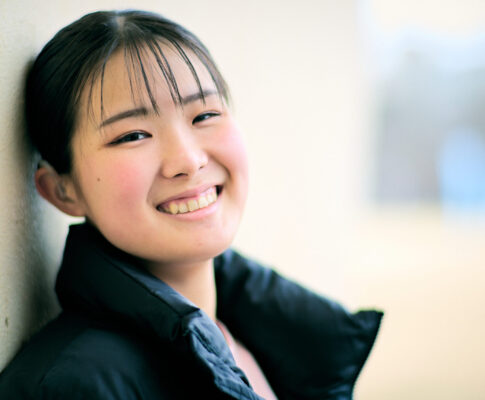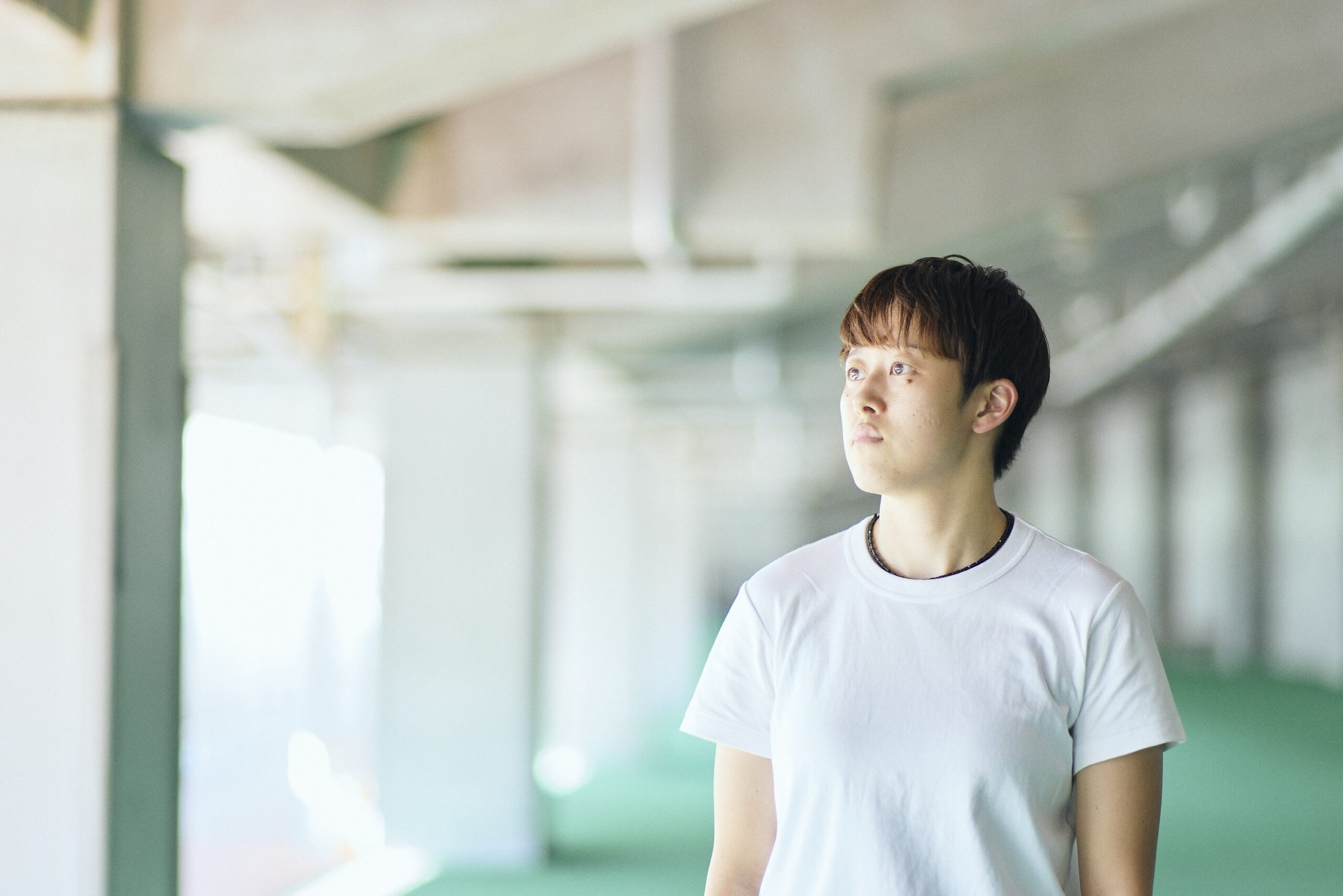
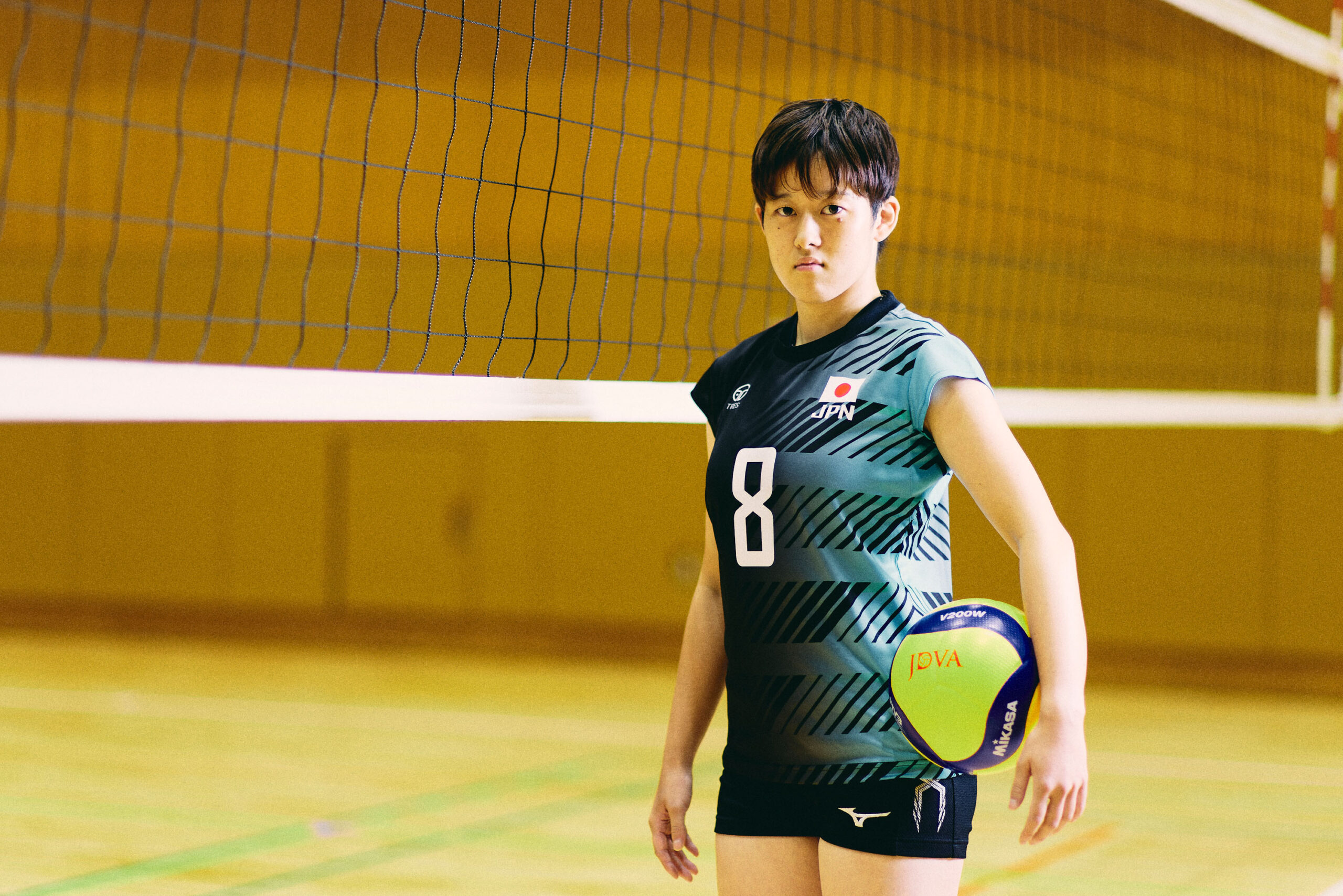
Mio Nakata
Born in Kanagawa Prefecture in 2001. Belongs to Shimizu Corporation.
Graduated from Kanagawa Prefecture Hiratsuka School for the Deaf and Tokai University.
She began playing volleyball in her first year of junior high school and was first invited to play for the deaf Japanese women’s national volleyball team at the age of 15. In 2016, as a freshman in high school, she won the best server award at the Deaf Volleyball World Championships, and in the following year, she led her team to a gold medal at the Samsung 2017 Deaflympics. At Tokai University, she won back-to-back intercollegiate championships in 2021 and 2022.
She won gold medal at the World Deaf Volleyball Championships in Okinawa in June 2024 and won the best setter award. She represents Japan and the world’s deaf volleyball world.
My reason for selection. One of them is “sign language”
――When did you start playing volleyball?
I started around June of my first year of junior high school, and I played football for seven years, from my first year of elementary school to the middle of my first year of junior high school. I went to a school for the deaf from junior high school, but that school didn’t have a football club… They only had baseball club, table tennis club, art club and volleyball club.
At that time, I was playing football at a local club with hearing people, but I found it difficult to communicate well with my teammates, which made it difficult for me. I thought I can enjoy club activities at a school for the deaf because I can communicate using sign language. I struggled to decide whether to continue playing football or join a club at a school for the deaf. Then, my oldest sister played volleyball and I wanted to try it, so I thought, “Maybe volleyball would be fine”. All of the other club activities wasn’t really for me, so that’s also why I chose volleyball.
――Were you good at volleyball from the beginning?
No, no, not at all. I had done it for fun, but never seriously, and I gradually got better at it by imitating other people who were good at it, such as my older sister’s classmates and seniors. I tried to imitate it and it was really fun when I was able to do it. I wanted to feel that pleasure again even more. It was a continuation of that.
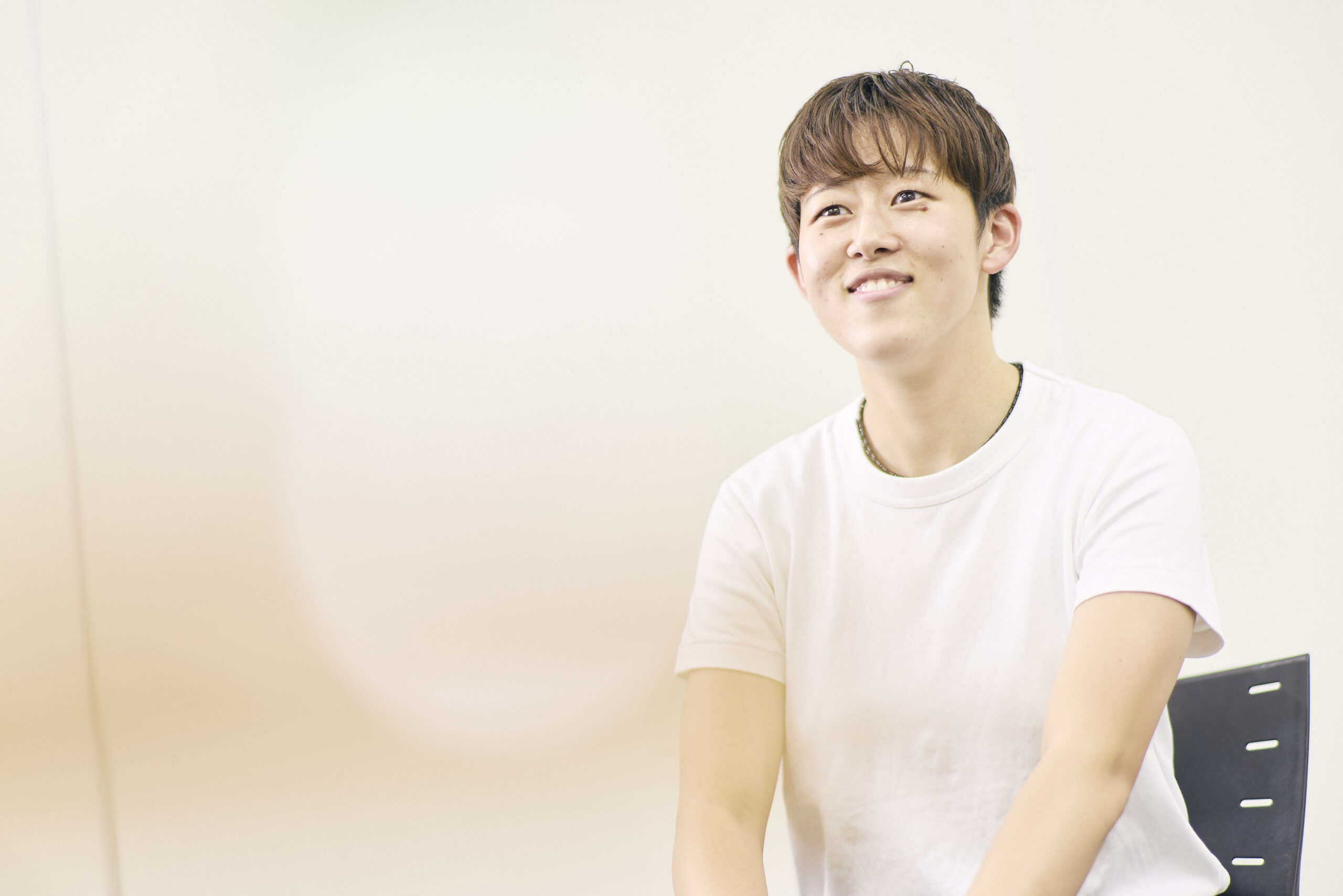
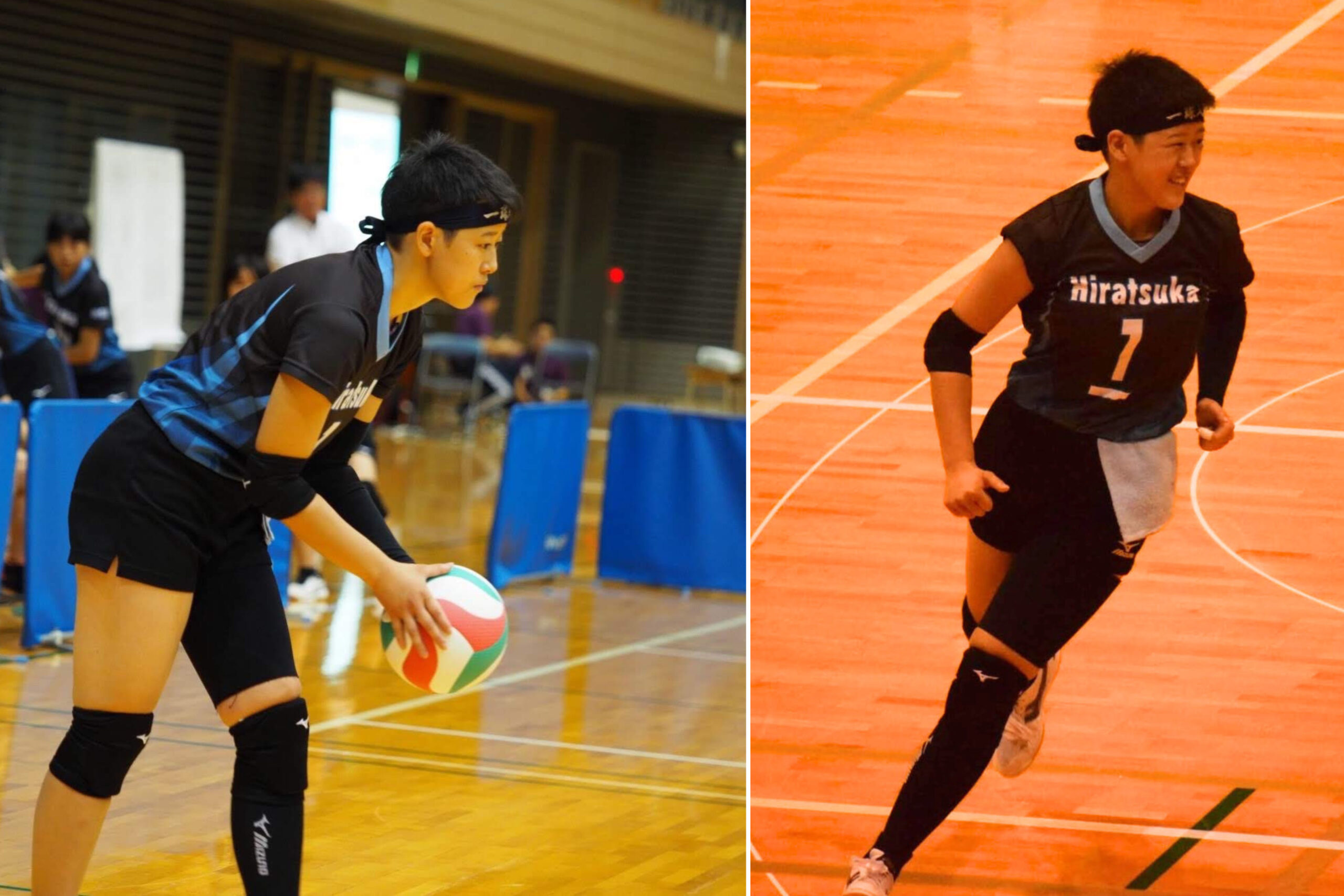
Communication in sign language was one of the reason.
*Courtesy of Mio Nakata
The path I chose after gaining strength. The deaf style shown there
――You went to Tokai University, but why did you choose this university?
One of the reason was that my dream was to become a health and physical education teacher since I was in middle school, so there was a physical education department where I could get my teaching license. The other reason was that there was a class where Tokai University players taught volleyball to junior high and high school students in Hiratsuka City, which is close to my hometown, and I participated when I was a junior high school student. Until then, no one from a school for the deaf had participated, so I was practicing while looking around, not really understanding what they were doing as university students didn’t understand sign language, and I coudn’t hear either. That is when I thought that if I entered this university, I would be able to teach students in sign language even when students from schools for the deaf came to participate. That’s why I wanted to go to Tokai University! Also, the university students who taught me at that time were really cool. I also admired to be like them.
――At university, you play with hearing players, but what is the difference with Deaf Volleyball?
The rule is the same with Deaf Volleyball. In general volleyball, a whistle is used to warn when there is a foul, but for Deaf Volleyball, visual aids are used as they cannot hear the sound such as the referee waving the net, the linesman waving the flag.
――What did you keep in mind when playing with hearing people?
A hearing person uses voice to communicate. In my case, I can speak out on my own, but I can’t hear the voices around me. So I asked them to use sign language instead of the voice. For example, when going to get the second ball, I will “wave my hand” to express “Got it”. I would make a team-promise such as asking the players what kind of sign they would use or I would request them before entering the court.
――I think there must have been a change with the hearing people since you joined the team?
Hearing people play by relying on their ears, so their field of vision is surprisingly narrow. On the other hand, I am a deaf person and only pick up information and make decisions with my eyes. Seeing my awareness and playing style, my teammates started to think about using their eyes as well, and their field of vision gradually expanded. They told me that they understood that volleyball requires not only sound but also eyes. I was very pleased because I was able to feel the meaning and value of joining this team.
――Did playing with hearing people in university have an influence on playing Deaf Volleyball?
Yes, there was! I now have more opportunities to convey to the Deaf athletes what I learned at a high-level university. When a deaf athlete asked me about playing volleyball, I not only shared my thoughts, but I also asked my college teammates and gave both opinions, and I even took a video of me playing volleyball and sent it to the deaf athlete. With the help of the university, I was able to raise the level of Deaf Volleyball.
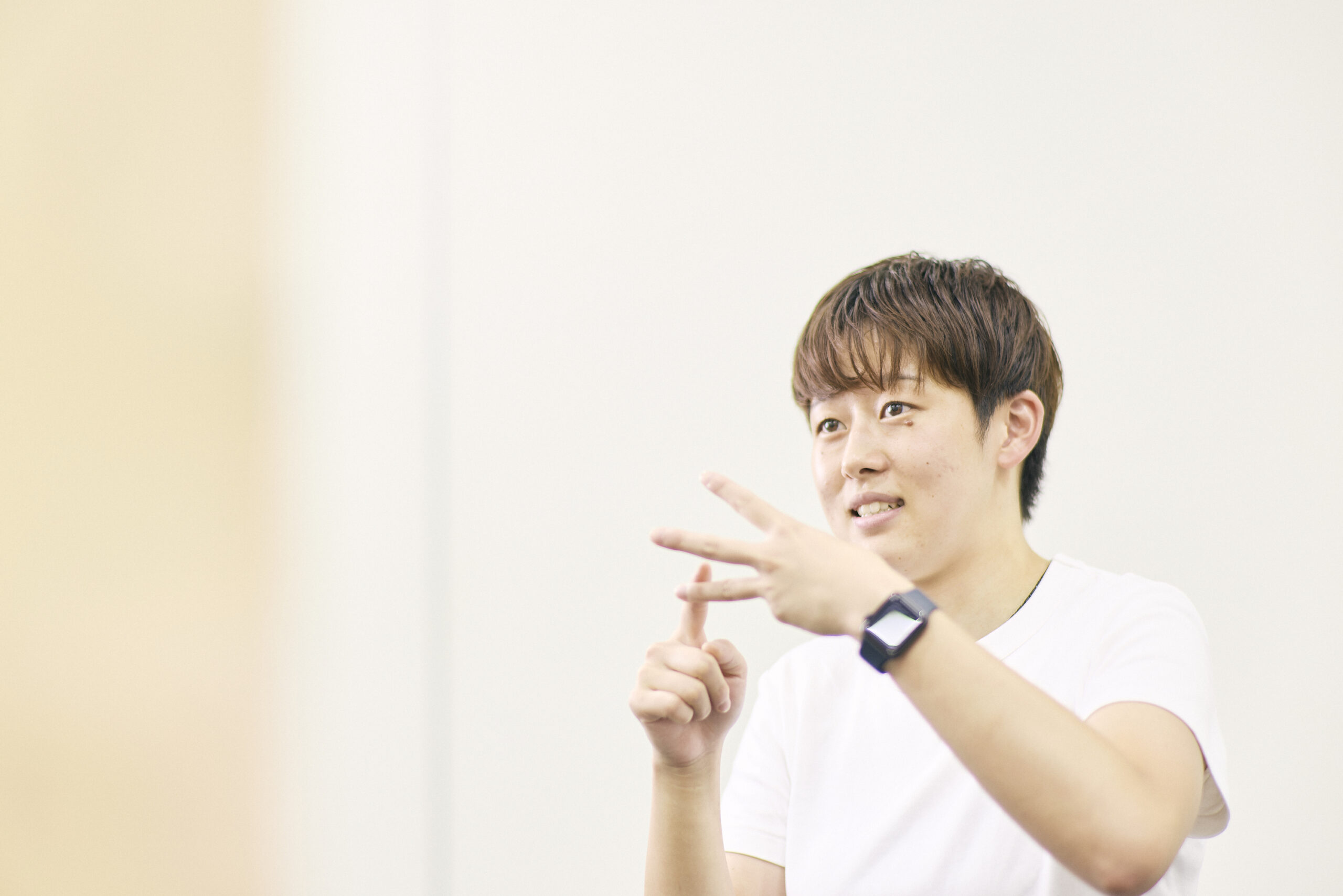
I was able to show the strengths that come with being a deaf.
“Invisible disability” The moment you overcome a big wall
――Have you ever thought about quitting volleyball?
The hardest time was when I was at university. I also went to a high school for the deaf, but I really wanted to go to a high school that had a strong volleyball team. But the school I wanted to go to didn’t guarantee information accessibility in class, so I decided to go to a school for the deaf. At university, I wanted to get better at volleyball and grow, so I entered the mighty Tokai University and joined the volleyball club for four years.
There had never been anyone at Tokai University volleyball club who was deaf, so at first everyone didn’t know how to communicate with me. There was a tournament right after I joined the club, so I didn’t have the time, and I continued playing club activities without being able to explain about my hearing loss. However, I still had a hard time communicating with them. And I didn’t enjoy playing volleyball anymore… That’s when I really wanted to quit volleyball.
But my volleyball colleague at university reached out to me by saying, “You enjoy playing volleyball right?” “It doesn’t matter if you can’t hear”. Thanks to that, I was able to reconsider. So, in order to change the environment, I gave a presentation about my hearing loss to all the club members and the coach. How much that I cannot hear. If I can’t hear, I won’t notice if someone talks to me from behind, so when communicating, I want them to come into my field of vision and then talk to me. These are some examples of sign language used in Volleyball. I summarized and explained these contents using PowerPoint. Then everyone said, “Really? I didn’t know that at all,” and everyone started thinking a lot about how to communicate. From there, I was able to build up communication little by little, and I was able to produce better performances as a team during play, and above all, I was able to have more conversations with everyone off the court. That was the experience of overcoming the biggest wall I’ve ever had.
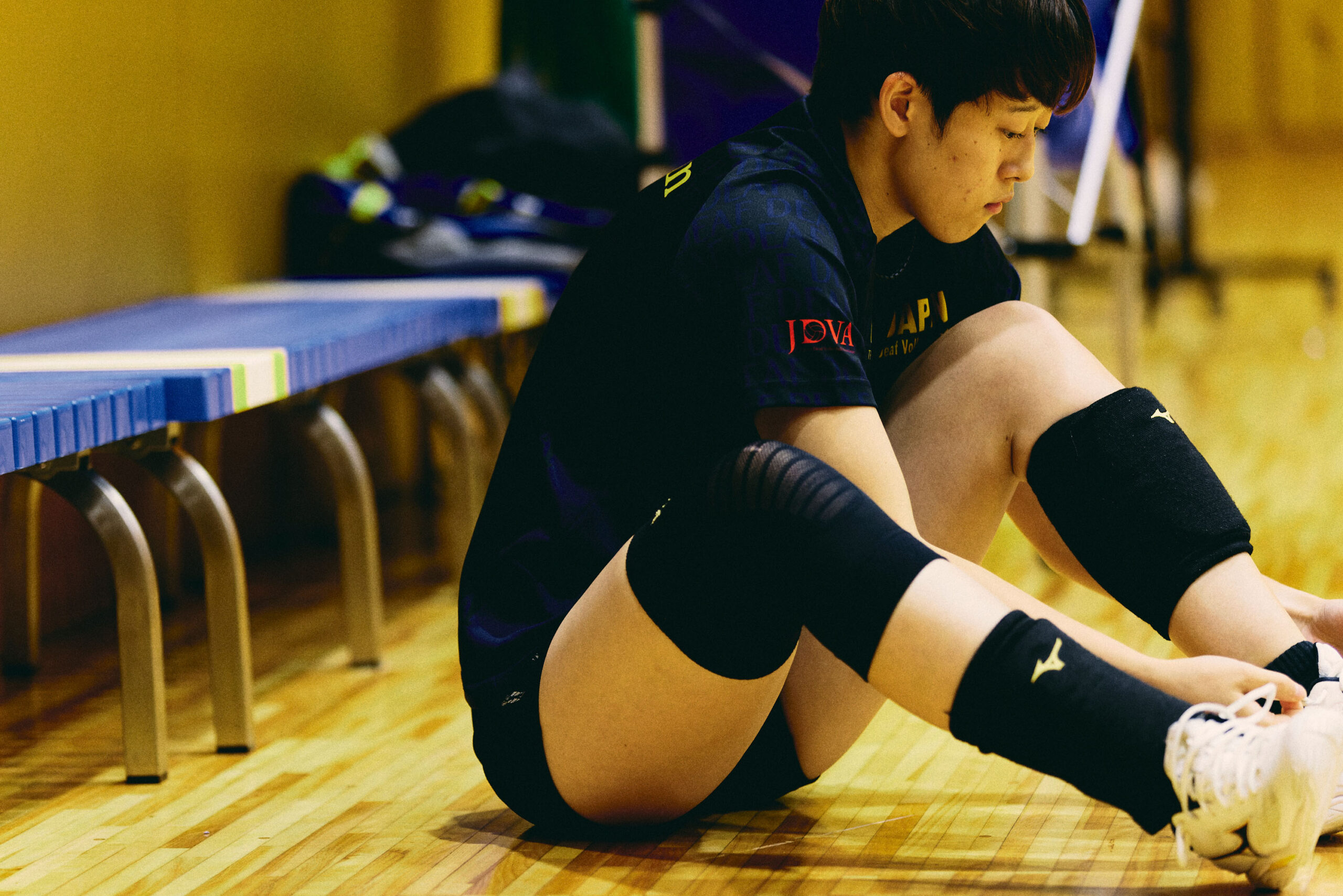
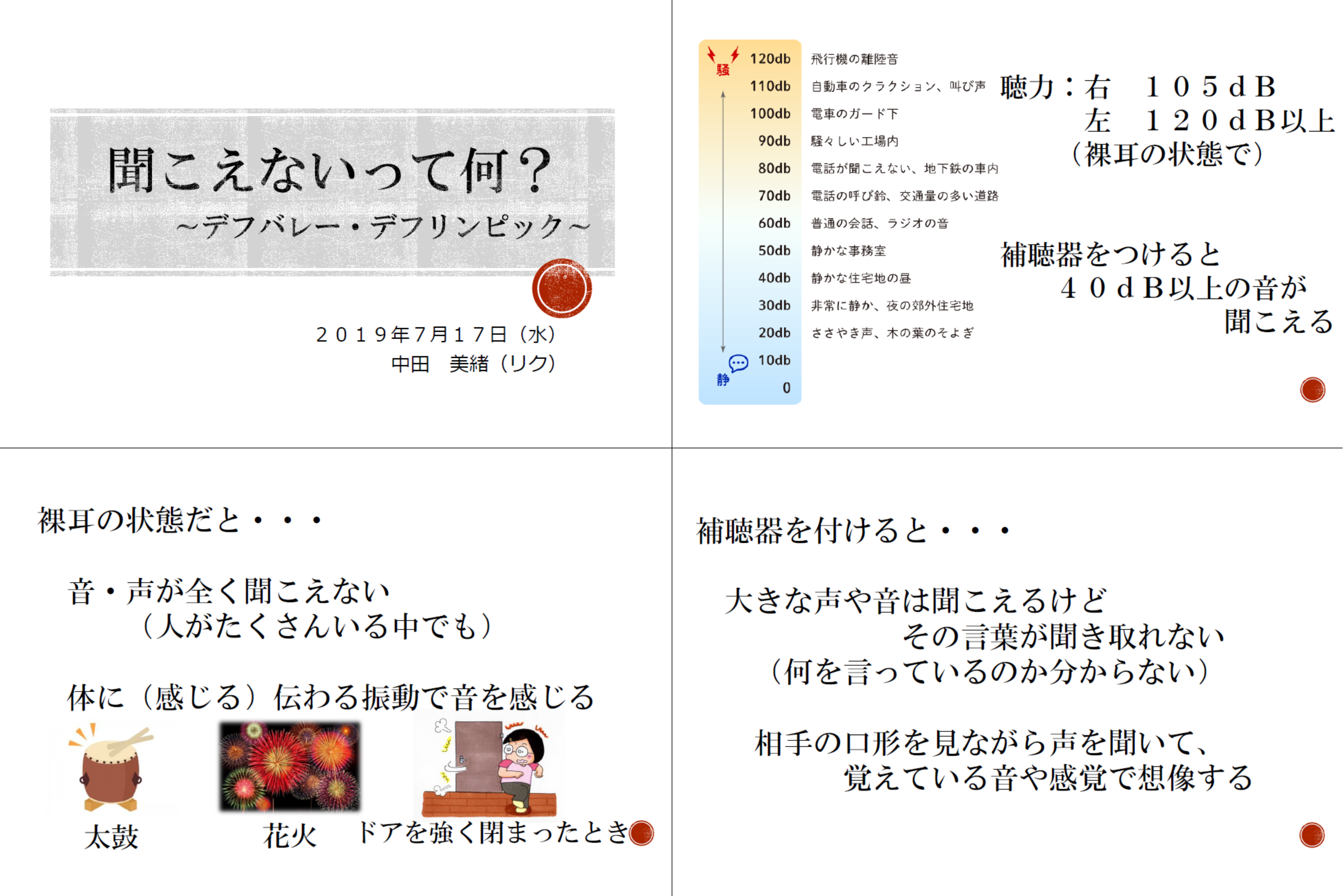
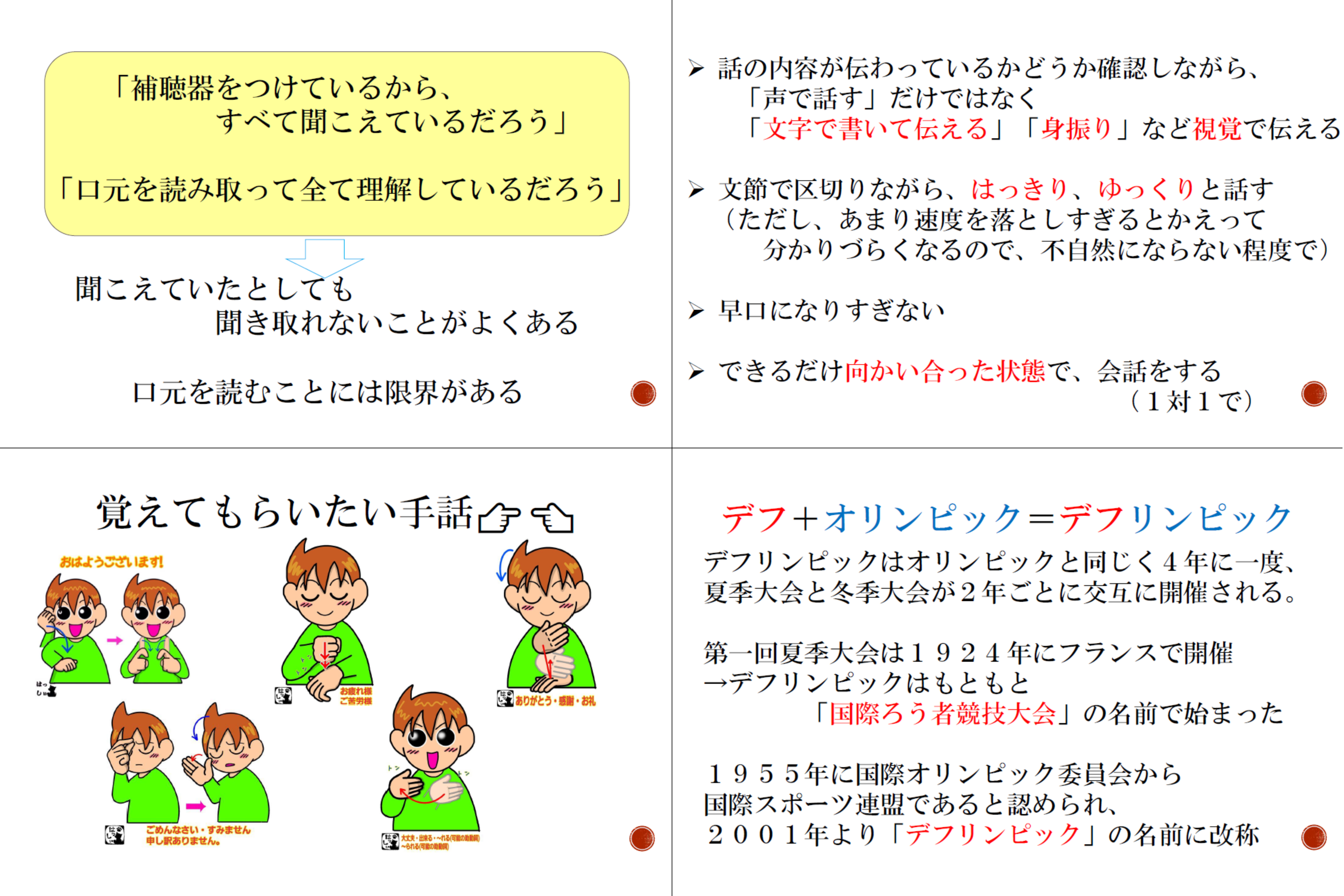
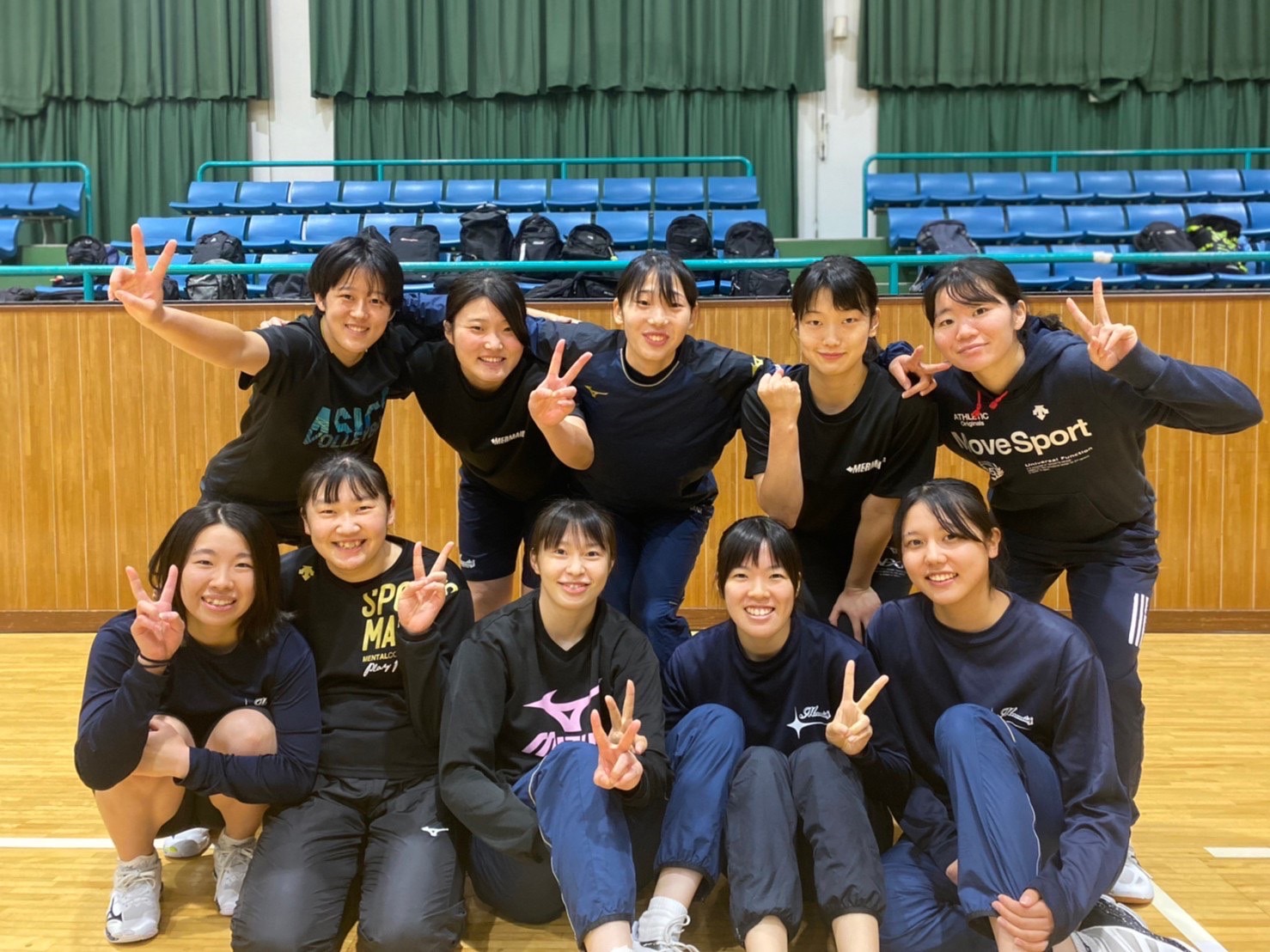
What made her change…
*Courtesy of Mio Nakata
――What made you decide to give a presentation?
When I told Miyuki Kano, the coach of the Japan Women’s Deaf Volleyball National Team, that I wanted to quit, she asked me “did you properly explain that you cannot hear?”. It is hard to see whether a person can hear or not. That’s why I received the advice that the best way to get people to understand is to explain it to them from the deaf people. That inspired me to talk about it, so I created materials and gave a presentation. Thanks to this, everyone’s understanding deepened and they became interested in sign language used in daily life. I remember feeling both happy and relieved.
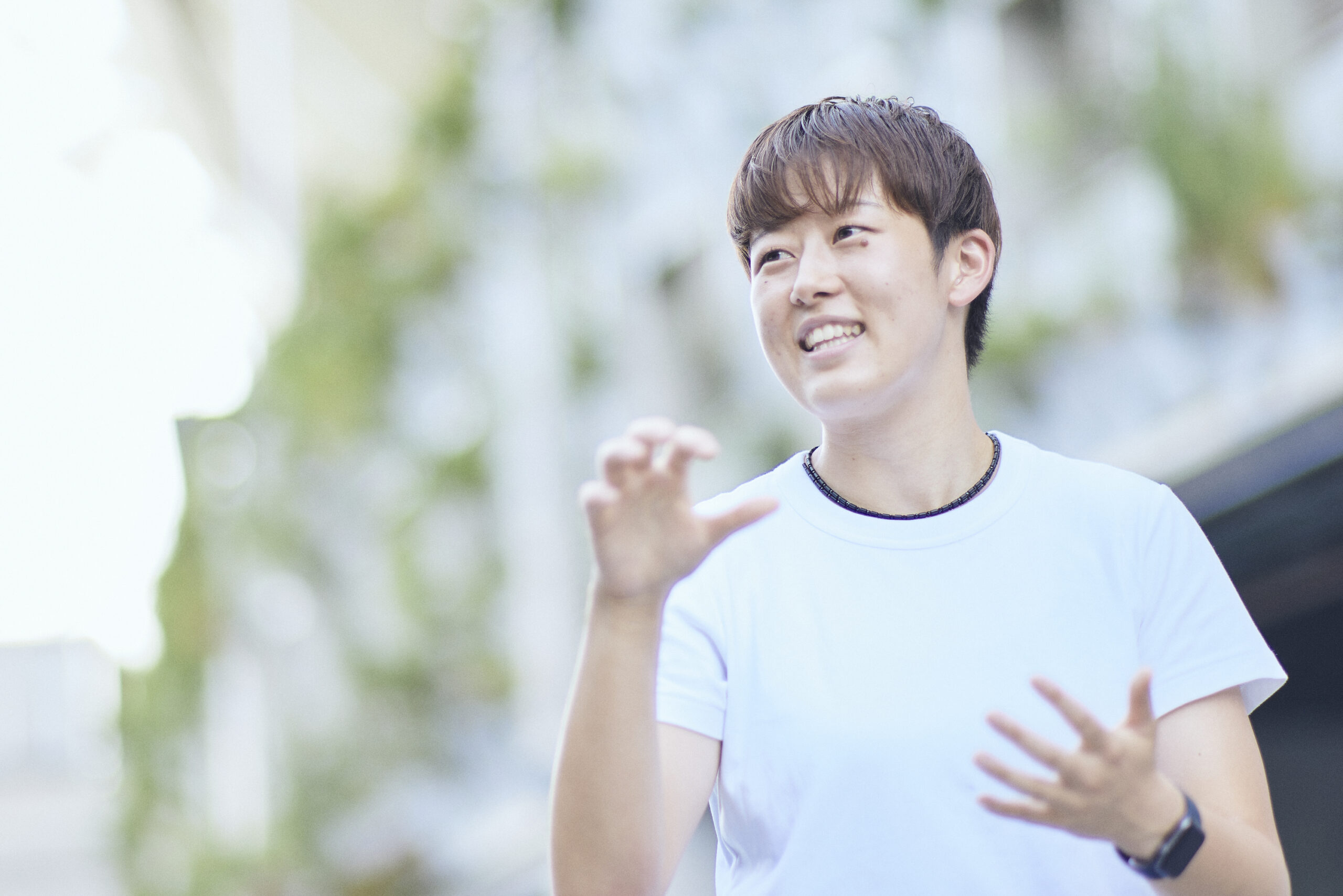
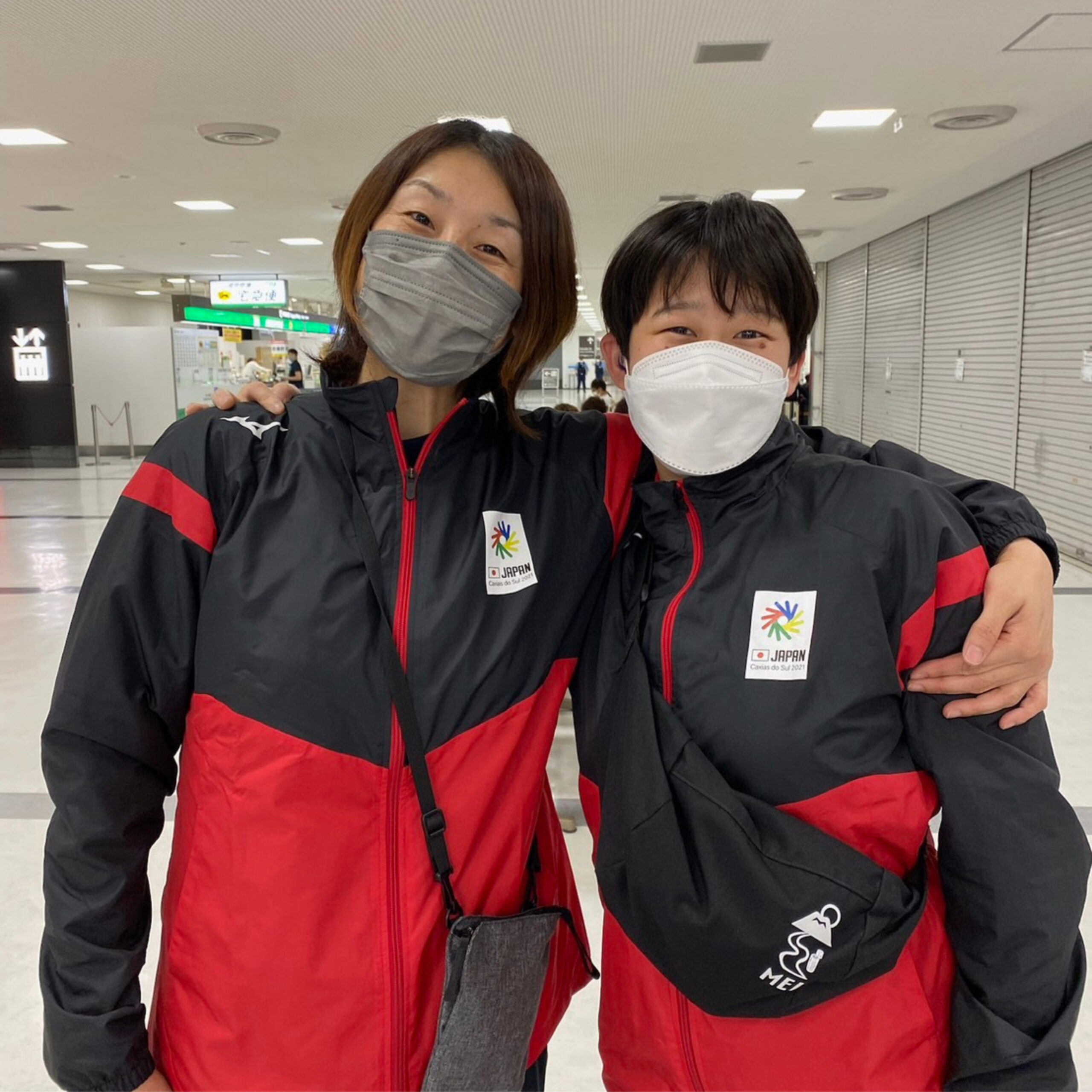
Maybe that’s why she said those words.
*Courtesy of Mio Nakata
If you toy with your opponent, you win!
――Were you a setter from the beginning?
Yes. Ever since I started playing volleyball in middle school, I had been a setter, and I was also playing a little bit as an attacker, but my main role was as a setter. Attackers have to receive, run, and attack, so they have a lot of work to do and it’s tough. Of course, being a setter is difficult, but you can toy with your opponent. I read the direction of the opponent’s block, and when I made a good toss, I thought, “I win!” That fun is unique to being a setter, and that’s what I like most about it.
――What is the most difficult part of being a setter?
The setter controls each player on the team during the match. I look at how a player is doing, and I think I’m going to let this person collect the ball a lot, or I’m going to let this person rest for now. Also I find out where the opponent’s block is the highest and think about the point to attack. When the received ball is up, I look at the attacker and the signals the attacker gives, and also look at the situation such as the position of the opponent’s block, and decide in an instant where to make a toss. I guess you can say it is a difficult role. It is sometimes said that “losing is the setter’s responsibility, winning is the power of the team”. A setter’s condition has a lot to do with winning or losing, so there is a lot of responsibility and pressure. Although it is difficult work, it is also very rewarding.
――Do you have an ideal player?
I have seen many players, but my favorite player is Haruka Miyashita! Her jump toss skills are very high, and almost everything is given by jump toss. Jump toss allows you to toss the ball in a high position, so the attacker’s hitting point is closer, making the attack faster and expanding the range of attacks. I’ve had a passion for jump toss ever since I started playing volleyball in the first grade of junior high school. I’m learning by always watching videos.
――Do you often watch such videos?
Yes every day since Junior High School. I’ve been reading Monthly Volleyball as well, and I think videos are easier to imitate. I use Miyashita’s strategic points, attack methods, and judgment as a comprehensive reference.
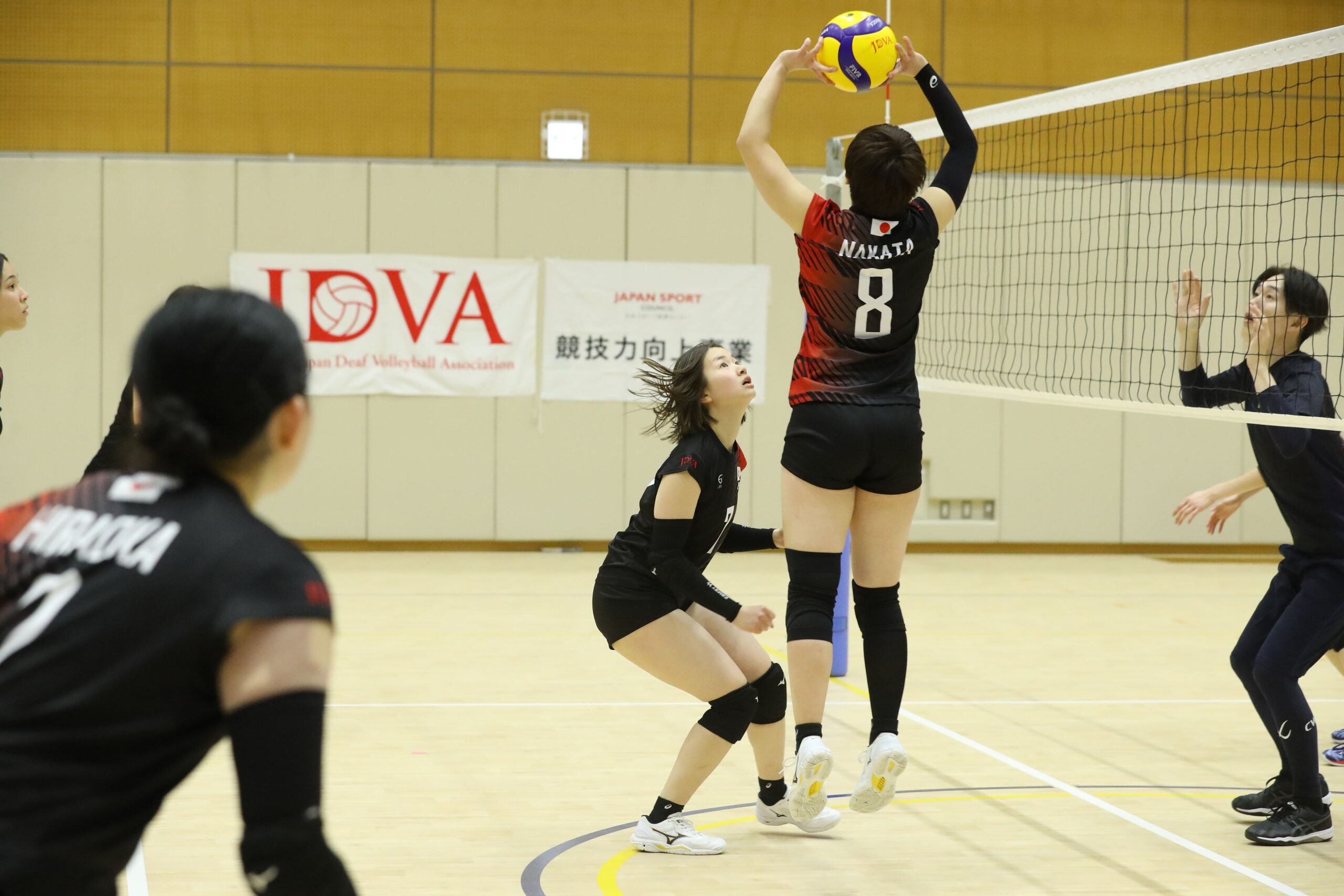
Inheriting tradition and passing it on to the next generation
――What do you think your strengths are?
Ball handling. I am often told that I make good use of hands and good at receiving the ball. Maybe that’s why I don’t dribble much. I am confident because I have been consciously honing my handling skills. On top of that, I’m currently trying to improve my ability to perform jump toss consistently.
――You made a great victory at the Deaf Volleyball World Championship held in Okinawa in June. Where do you think Japan’s strength lies?
The biggest strength is the serve. Japanese have a short height, so you can’t compete based on height. That is why defense is very important. Japan’s specialty is to first break down the opponent with an aggressive serve, steal the chance ball, and then attack with a quick attack. We are still concentrating on strengthening it. Having won the World Championships, the world will come to beat us at the Tokyo 2025 Deaflympics, so we have to become even stronger!
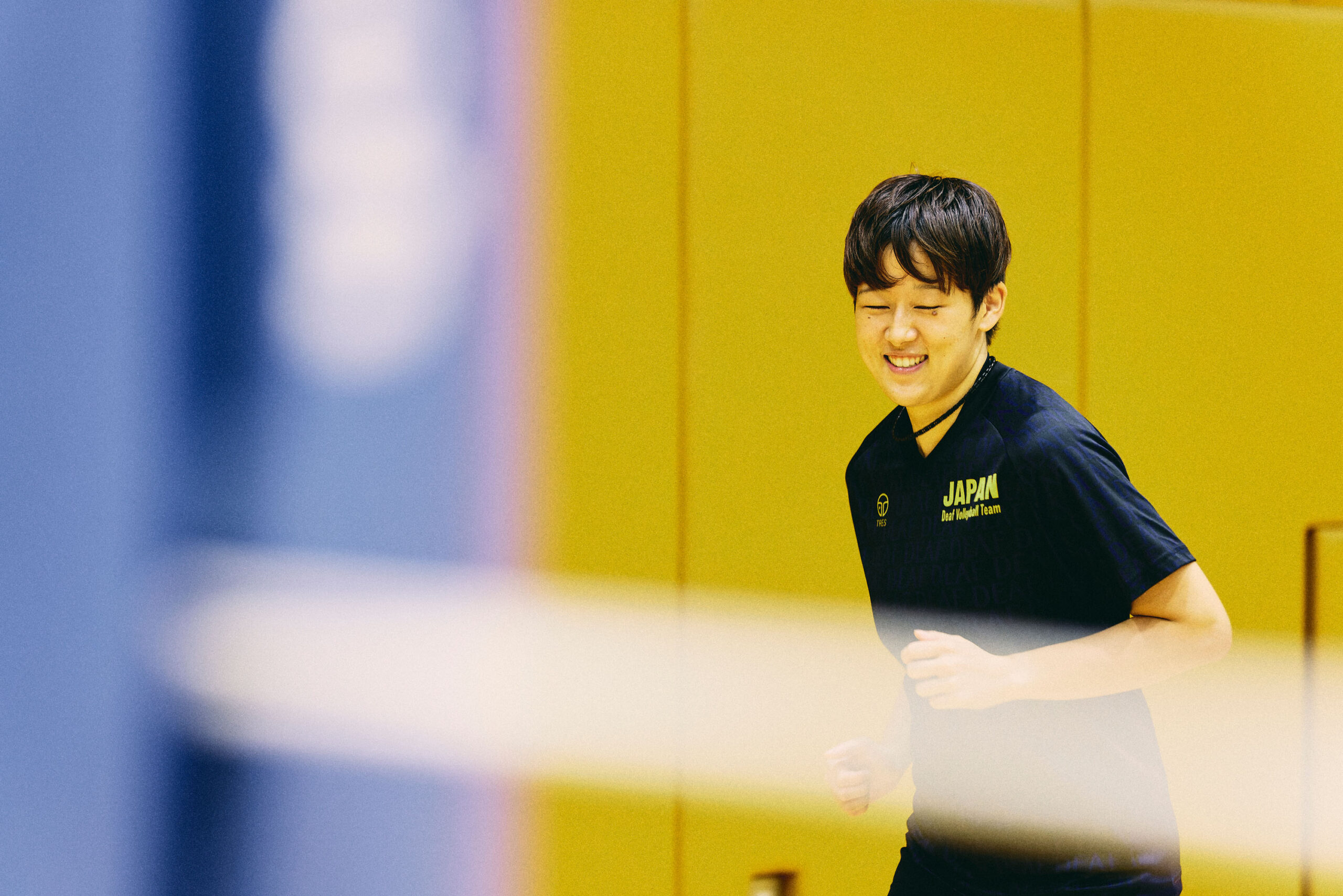
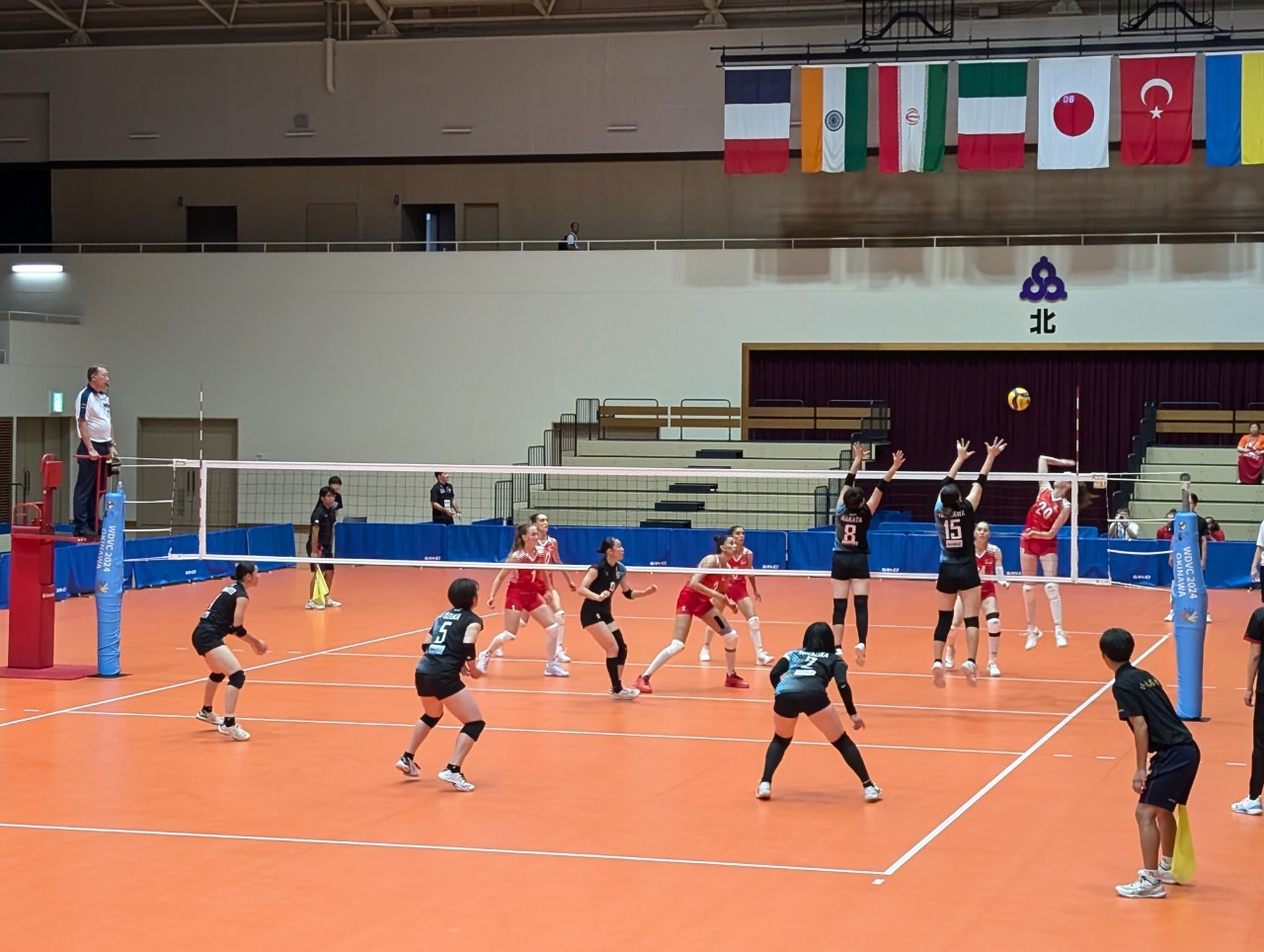
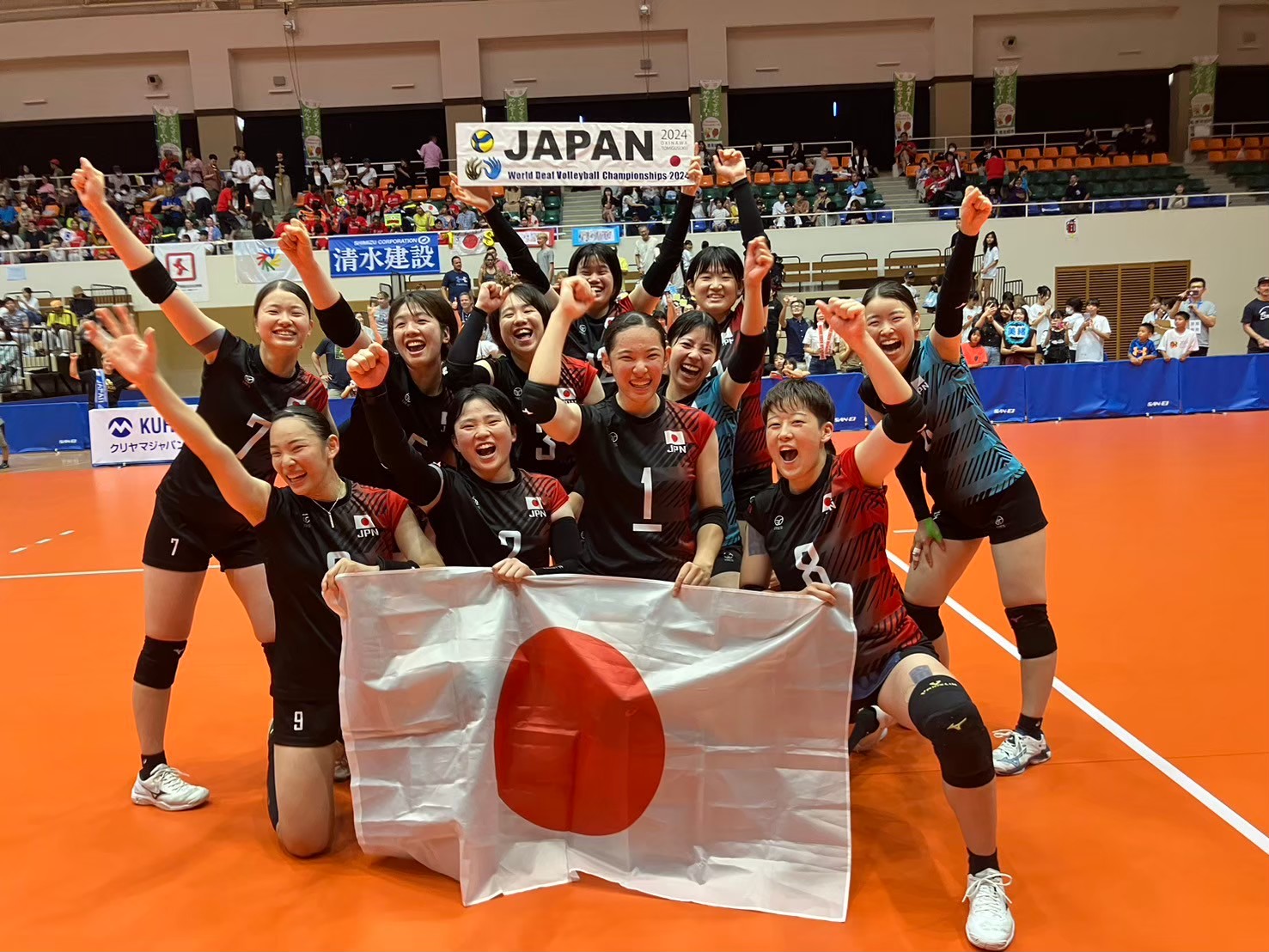
In 2025, we will be in a position of being chased.
*Courtesy of JDVA
――You have been involved with the national team for 11 years since you were selected for the Japan national team at the age of 15. Have you seen any changes in your position or role within the Japanese national team?
When I first joined the Japan national team, the oldest member was 33 years old, more than 10 years apart, and I was in middle school at the time, so it was difficult to communicate. However, as I continued to play for the national team, the seniors in the team talked about the history of Deaf Volleyball that they had experienced, and their thoughts on the national team. Now that I am in the mid-career age, and the number of younger members is increasing, I think one of my roles is to accept the progress and thoughts that have been built so far, accumulate my own experiences, and pass them on to my juniors. I feel like I’m taking over times.
――When did you shift to the role of taking over and coordinating the team?
It was around the time the Samsung 2017 Deaflympics ended. At that time, more than half of the members retired, and the only remaining members from that time were Yumi Haseyama, Sayuri Hiraoka, Manami Ozuka, and myself. It’s almost like we’ve been reborn as a team with new players, but there are things that only these four people know and can’t convey, so we said, “We’ll have to do our best as a team in the next tournament”, and even the coach told us.
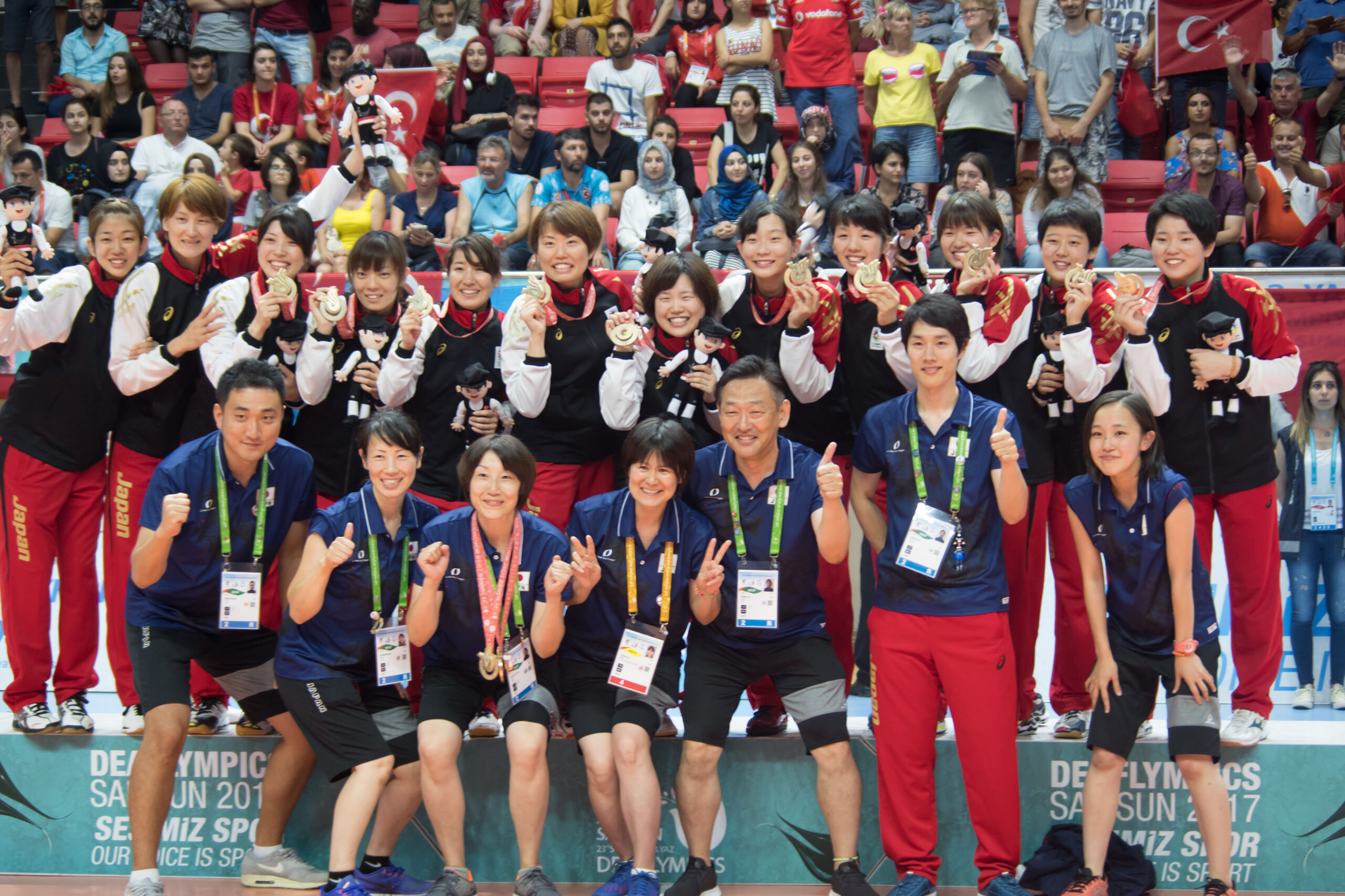
*Courtesy of JDVA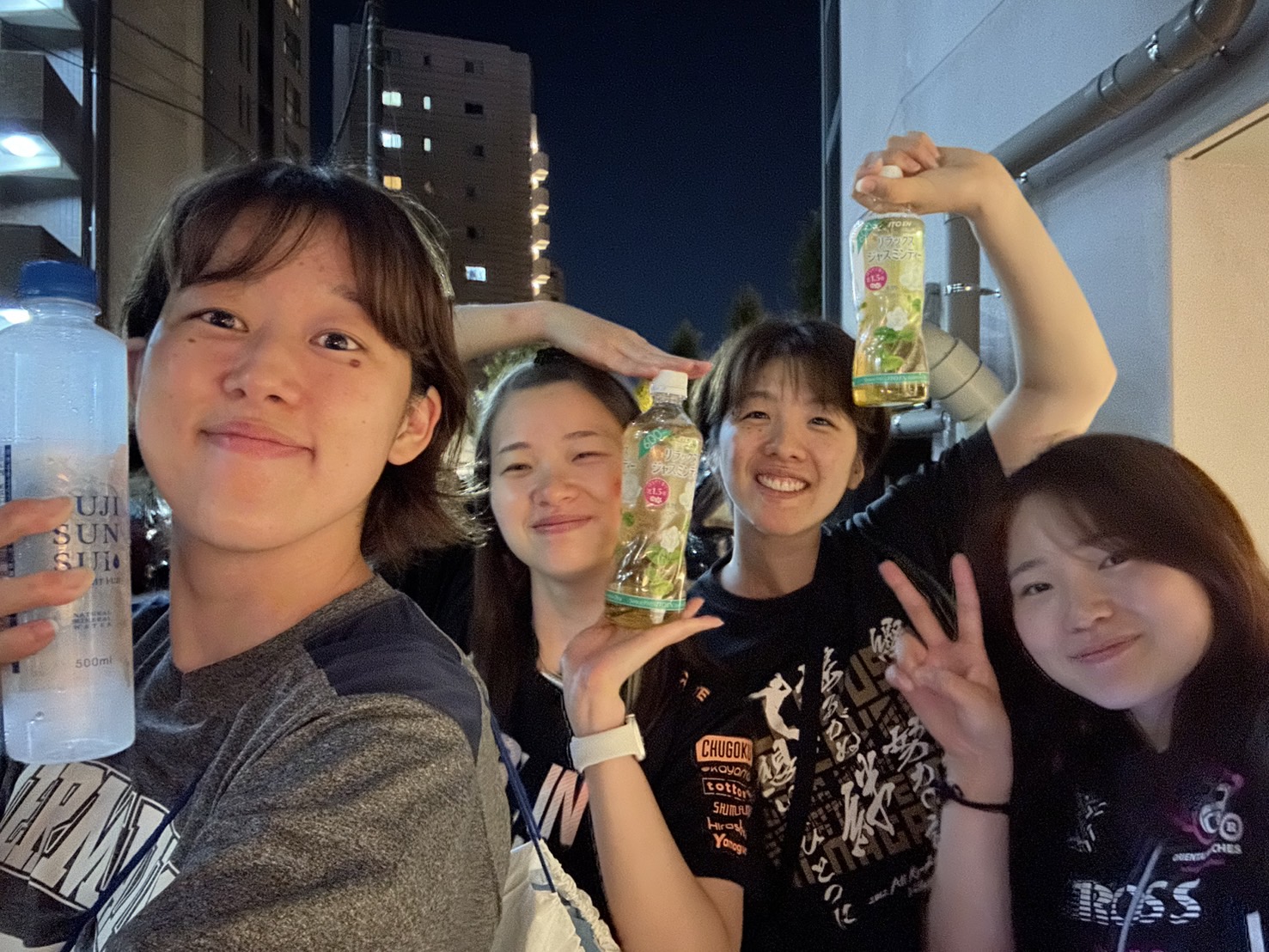
From left, Mio Nakata, Yumi Haseyama, Manami Ozuka, Sayuri Hiraoka
*Courtesy of Mio Nakata
――What is the driving force for maintaining high motivation?
For me now, my life is volleyball. Volleyball is my life. It is natural that there are limits to staying active, such as age, and that is why I will do my best while I can still move my body. That is my life. That’s how I think. “I’ll do what I can”. Now is the only time I can always do that. That is my driving force.
――Tokyo 2025 Deaflympics will be held next year in Tokyo. How did you feel when you knew about this?
I think it was a little before the 2022 Caxias do Sul Deaflympics that I learned that it might be held in Japan. At that time, I thought it was just the right age since I will be 25 years old in 2025. 25 is a good age because you are healthy and able to move your body. At the Tokyo 2020 Olympics, I saw an athlete say in an interview, “I want to give people a lot of courage and dreams”, and as a deaf athlete who feels the same way, I also felt that I had the chance to make my dreams come true.
――Please tell us your goal for the Tokyo 2025 Deaflympics.
Of course, to get a gold medal. I was very happy to win at the World Championships. That’s why I want to get a gold medal at the Deaflympics even more. Deaflympics is pinnacle of deaf sporting events. I want to win there and prove our strength.
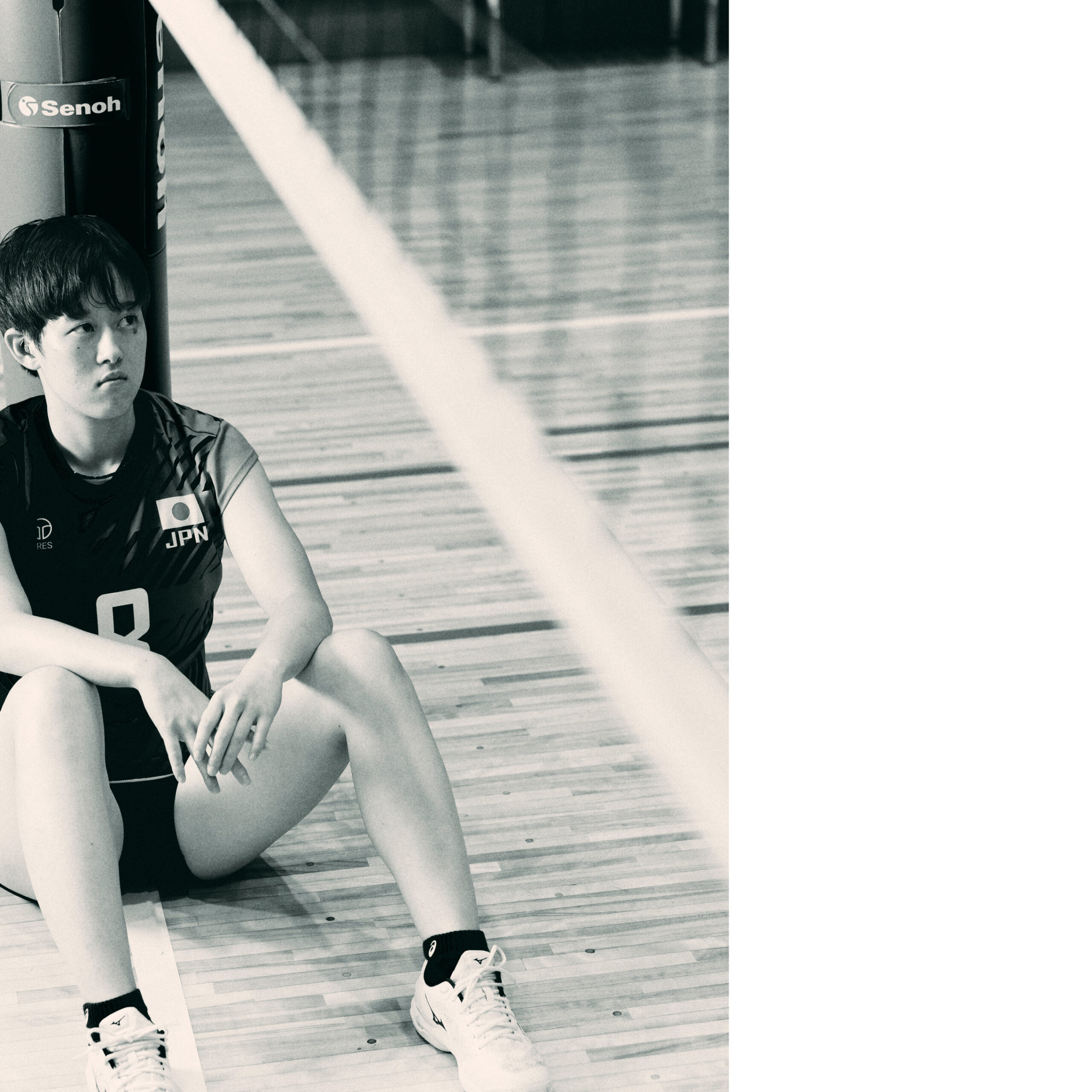
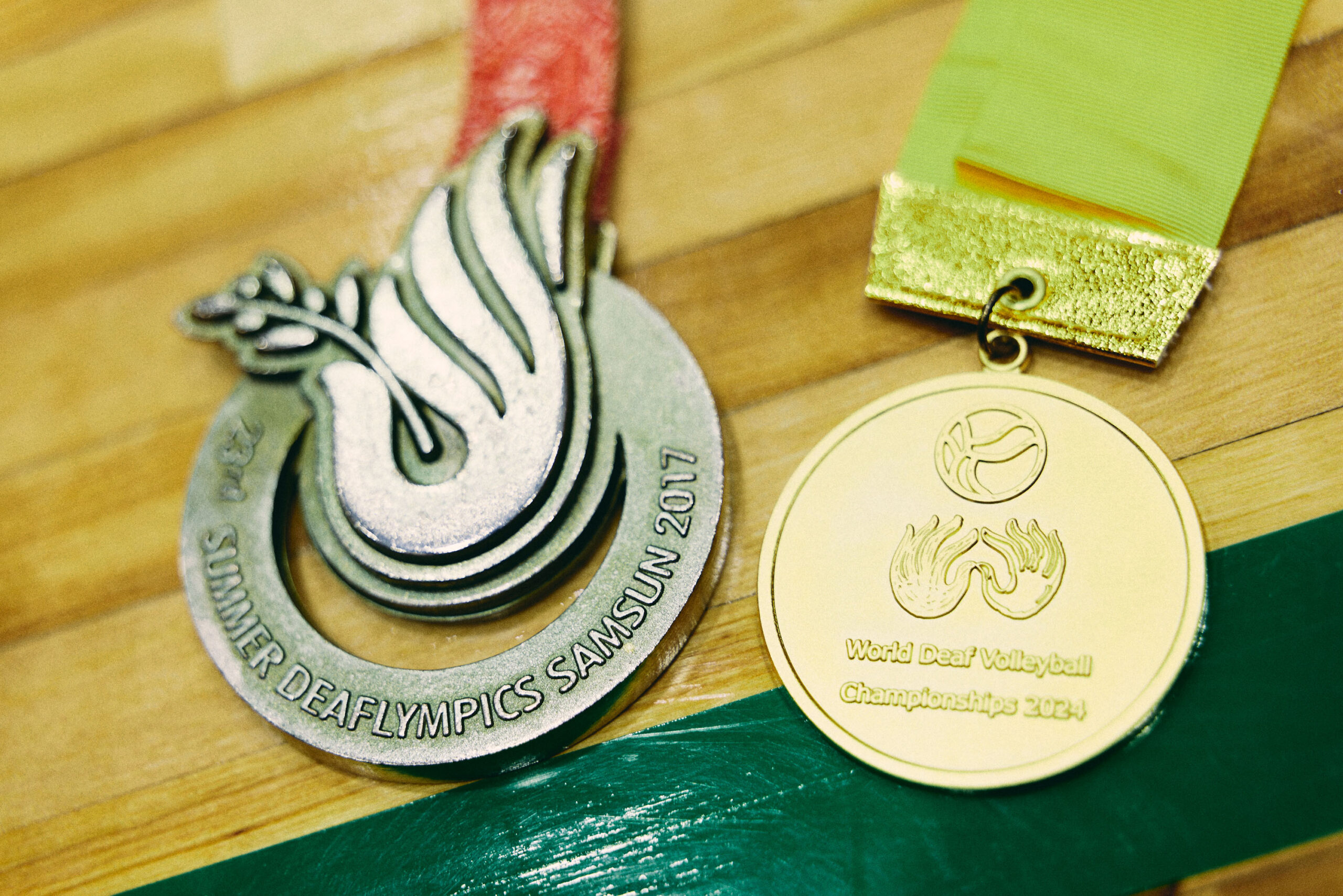
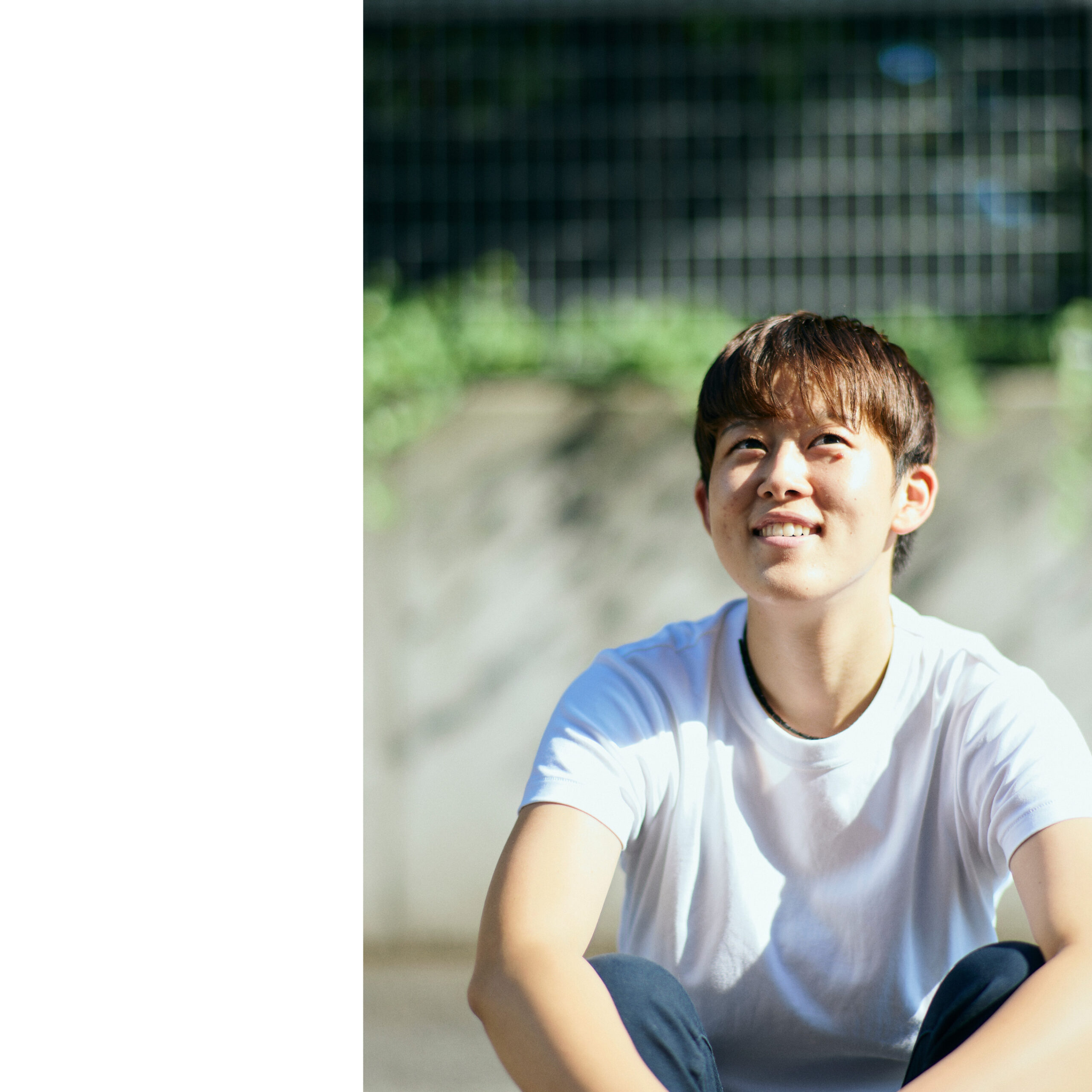
I like making connections
――Please tell us your personal side from here. What kind of person do people often say that you are?
They often tell me that I love volleyball. And boyish, honest…etc. People I meet for the first time sometimes say I’m cool, and sometimes they say I’m easy to talk to. I often go and communicate with people I want to connect with, so I’m really happy when people talk to me. I have never analyzed my personality that much…, but I feel more at ease if I do the right thing, so I’m more of a down-to-earth or serious type of person.
――From what I’ve heard so far, I feel that you have a strong will… What kind of work do you usually do?
I belong to the General Affairs Department of the Global Business Headquarters, which works on international relations. I have a variety of jobs, but the main one is to send internal mail from the head office to overseas branches, which are located in 20 countries such as Singapore, Malaysia, and the United States. I will communicate in English to overseas branches, but at first I couldn’t do that, so I had to rely on a translation software. Now that I’m getting used to it little by little, I’m able to type English myself and contact them. It’s fun and rewarding to be able to create connections with my own hands.
――You enjoy building connections, but do you have any good friends from other sports that you keep in touch with on a regular basis?
There are many! Among them, there are two people I often talk to, and one is Ayaka Kujuro, a second-year university student who is a deaf football player. She has won a gold medal at the Asian Games and previously played both football and futsal, but she is focusing on just playing football at the moment. The other person is my classmate, Deaf athletics player Hinako Kamimori. Because we do different sports, the values and ways of thinking are also different, so it’s exciting to talk about it. It’s also fun to see that we have completely different ways of thinking, not just about competitions, but even when we talk about personal matters. The three of us often go out for meals, have video calls, and last year we went on a trip.
――You mentioned about traveling, but do you travel often?
I wasn’t interested in travelling as volleyball was my priority until university. However, since I started working, my days were all about work, and I finally realized that I needed a break. Little by little, I think I’ve started going to places a little further away when I don’t have volleyball practice. It’s only recently that I’ve started enjoying my time off.
――Where did you go with Ayaka Kujuro and Hinako Kamimori?
At the end of the year, I went to Ise Shrine and Nagashima Spa Land in Mie Prefecture and ate the famous Japanese spiny lobster. We didn’t plan this trip in advance, but we decided on a whim. Apparently Mie is famous for Japanese spiny lobster! Oh, is that so? Shall we go then? Yeah, let’s go! The Japanese spiny lobsters I ate at a fancy restaurant which cost around 10,000 yen per person was really delicious!
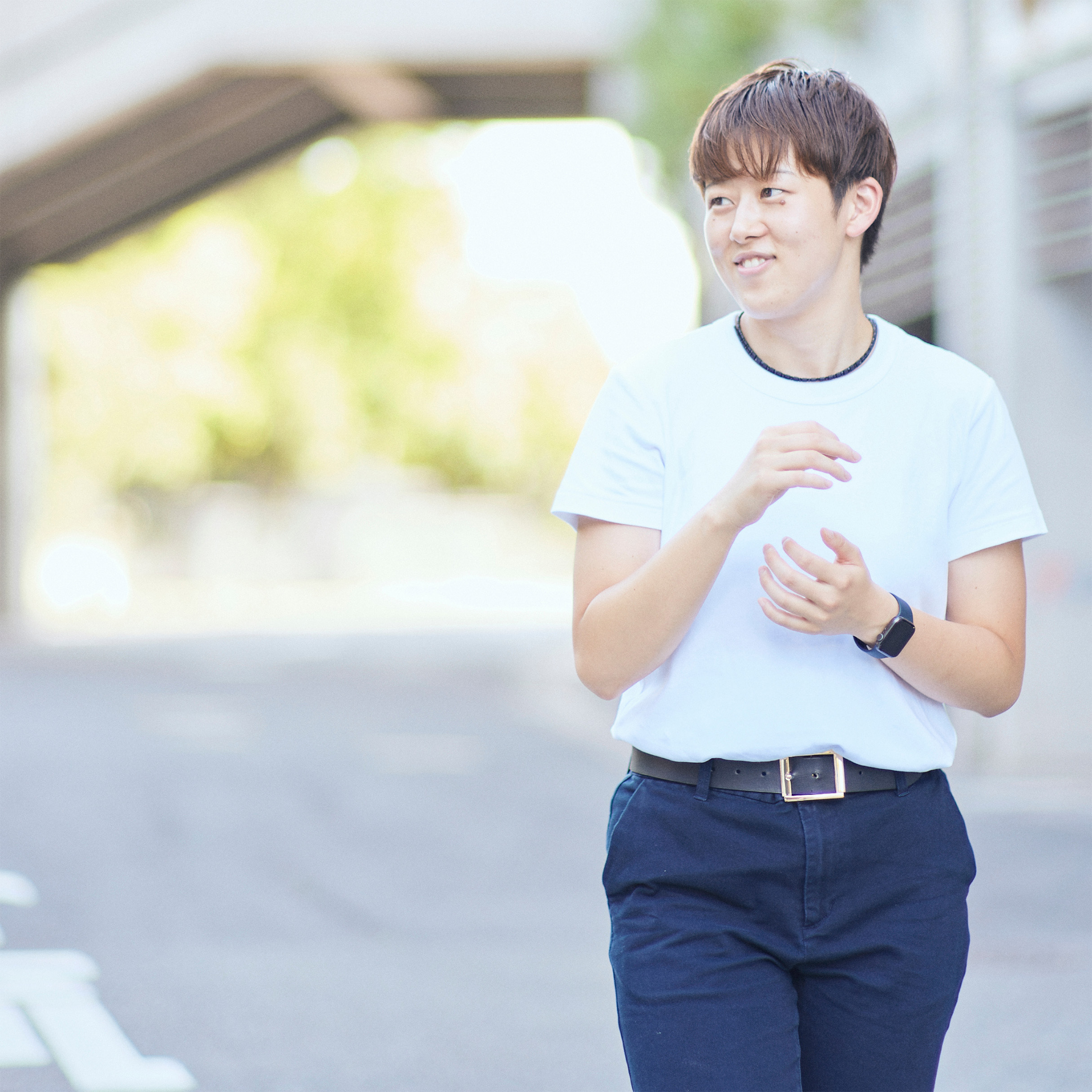
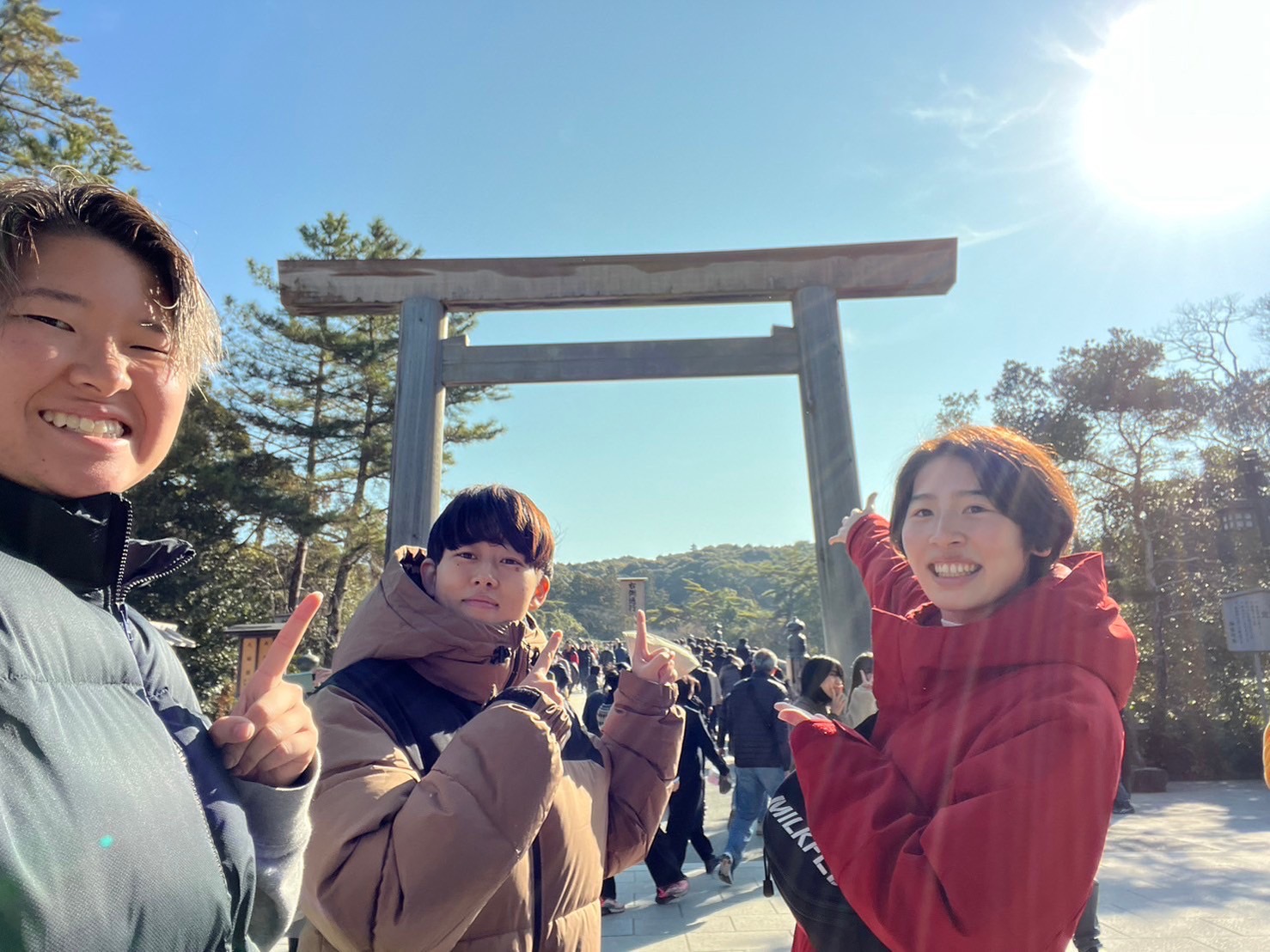
Ayaka Kujuro on the left and Hinako Kamimori on the right
*Courtesy of Mio Nakata
“Keep your eyes high, keep your head low, and have a big heart”.
――When you are with friends who are football players, doesn’t your love for football grow again?
In my elementary school yearbook, I wrote, “My dream is to become a football player and participate in the Deaflympics”. I was actually able to participate in the Deaflympics, but not as a football player. Actually, even when I was playing football, I was invited to the Japanese national team. At that time, I couldn’t become a national team player due to age restrictions, but I was told that I could become a training player.
When I attended the 2017 Samsung Deaflympics, I met a former women’s football coach. The former coach asked me “Why don’t you play football?”, and I said “Maybe someday…”. If I were born again, I might want to be a football player.
――Were you shaken by the call from your former director?
Yes, there was some hesitation. I’ve never said it to my family, but if I retire from volleyball, I’d like to participate in the Deaflympics as a football player at least once. Ayaka Kujuro says she is waiting for me. But right now, volleyball is everything, so even if I do it, it will be after 2030!
――I will be secretly looking forward to seeing you play an active role in football. You seem to have thoughts attached to each word you say, but are there any words that you cherish?
Former Japanese volleyball player Miyu Nagaoka said, “Keep your eyes high, keep your head low, and have a big heart”. To always have high goals. Always remember to be grateful. To become a person who is loved by the people around you. As those words suggest, I try to say “thank you” at least once a day so that I don’t forget to express my gratitude toward my goal of winning a gold medal. To get someone to love you, first do what you can for them. If you do that, they will naturally say thank you. I learned this word when I was in middle school and have cherished it ever since.
――That is a good word… Finally, please give us a message for our readers who are looking forward to the Tokyo 2025 Deaflympics!
The volleyball games at the Paris 2024 Olympics were so exciting that I watched all the games. What I thought was that one point carries a lot of weight. It’s not just about getting 25 points, it’s about how to get 1 point. There is one point after we have made an all-out effort to each other. Watching everyone fight with all their might on that biggest stage, and watching the match advance based on their efforts, I felt the weight of one point. That’s why all the spectators get really excited. I too would like to get that one point and experience the joy of that one point with everyone. I want to play such an exciting match in front of as many people as possible. I appreciate your support!
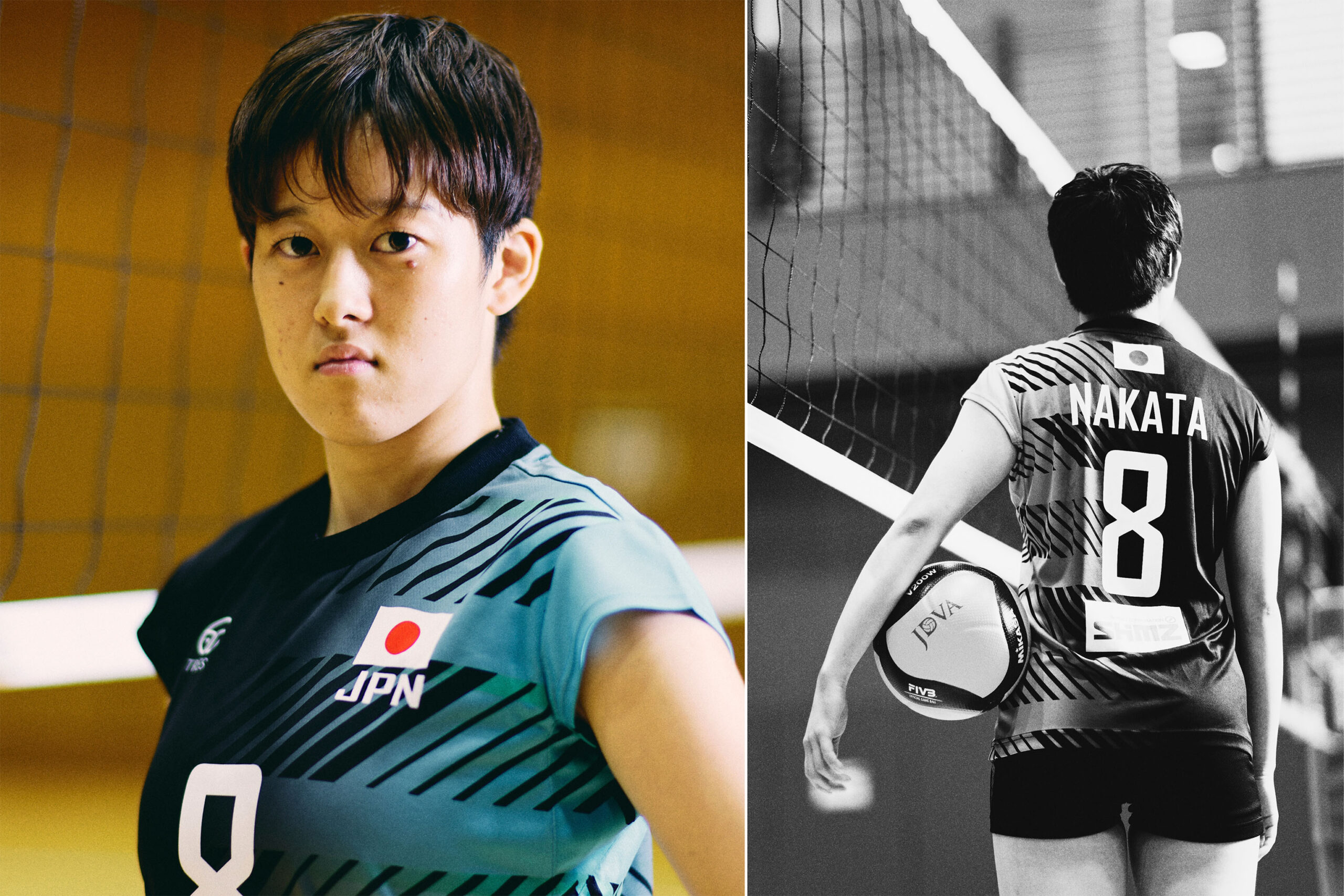
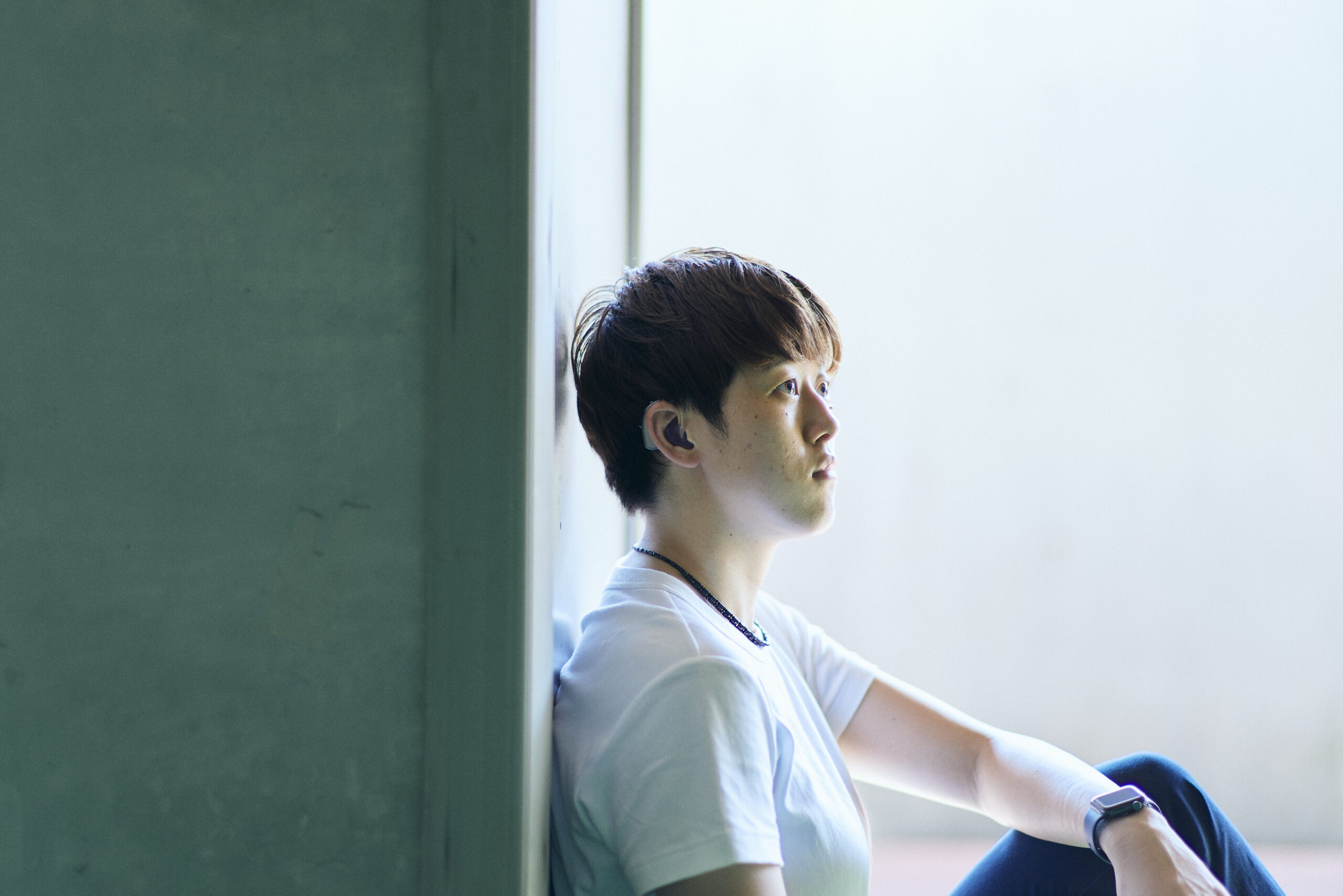
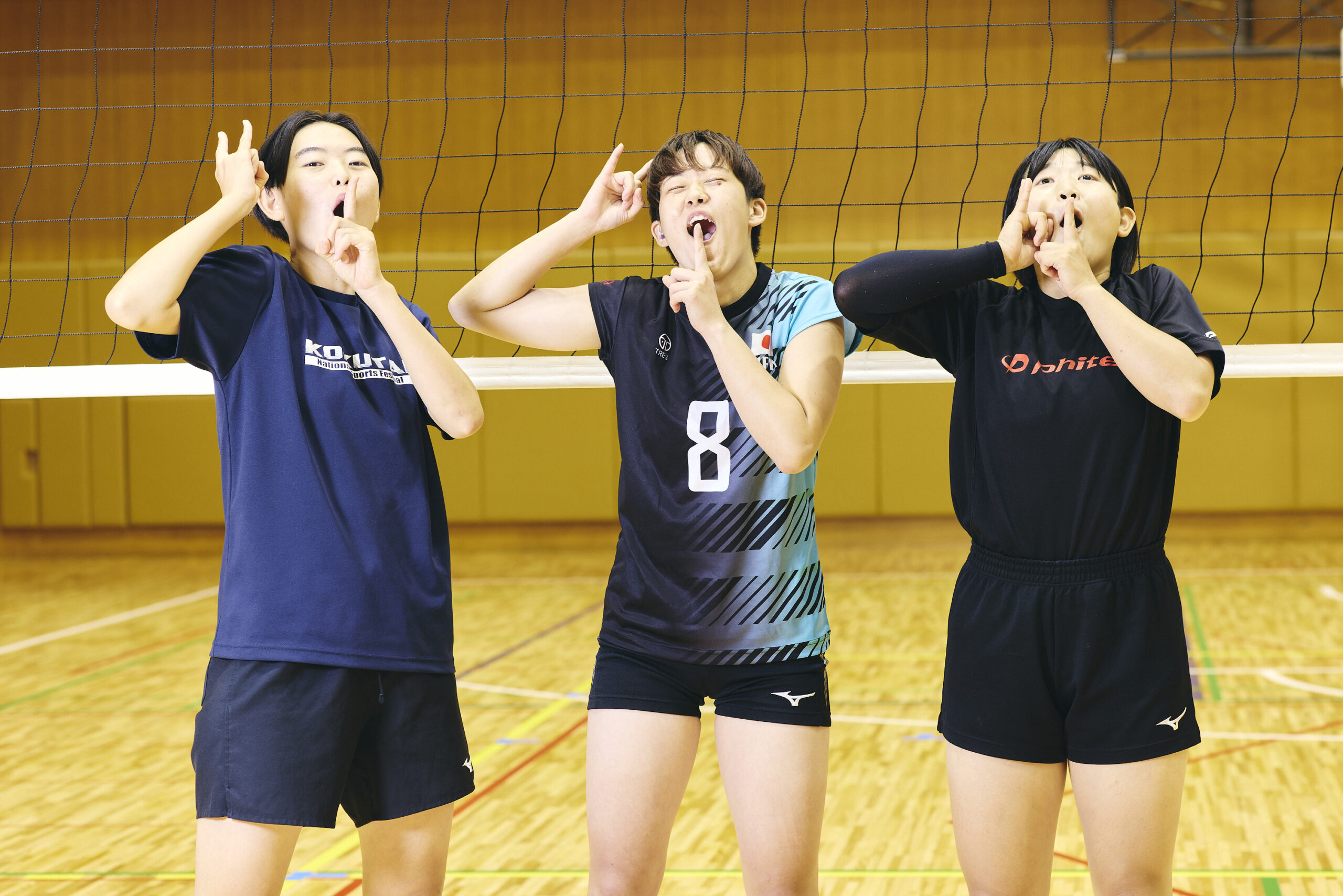
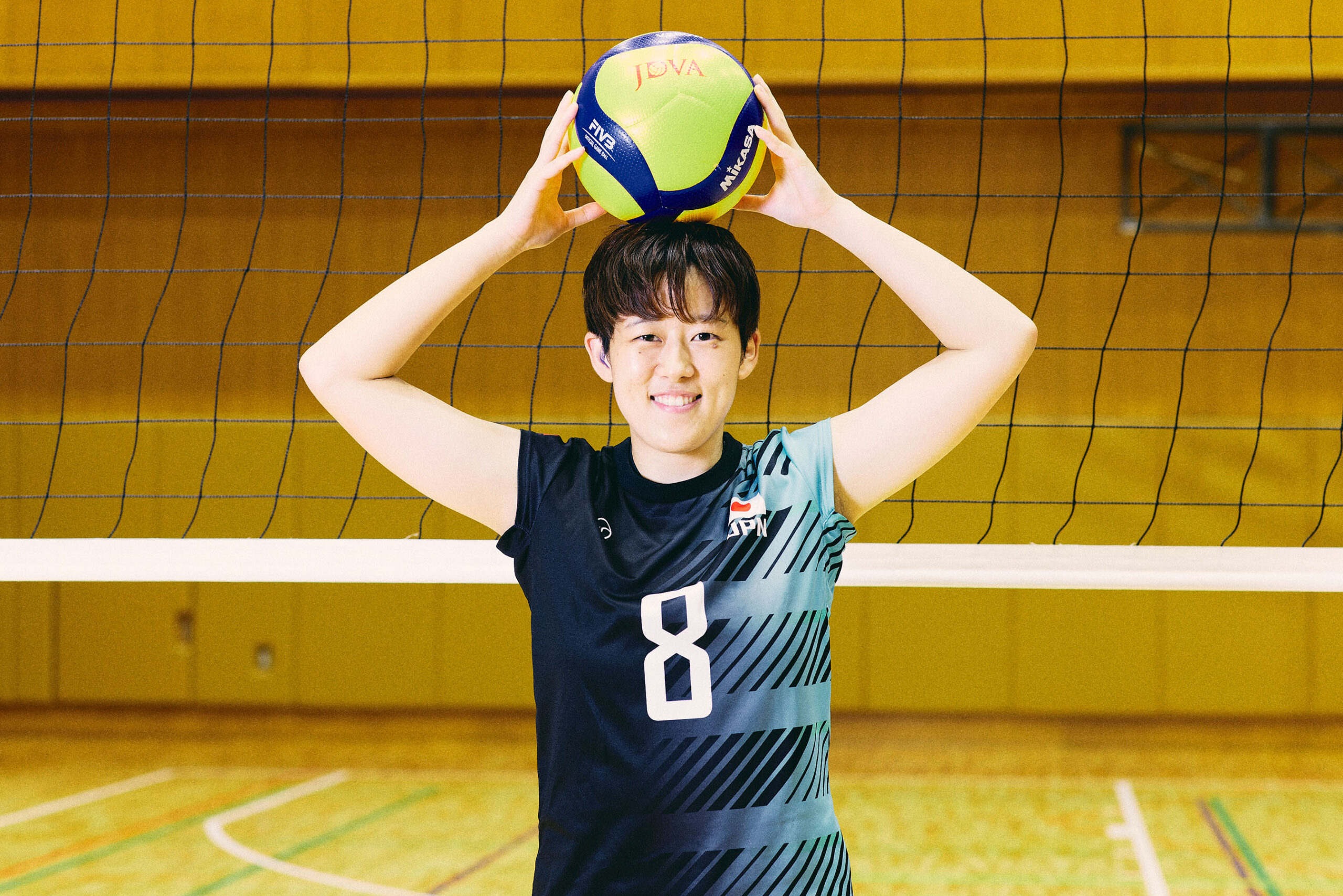
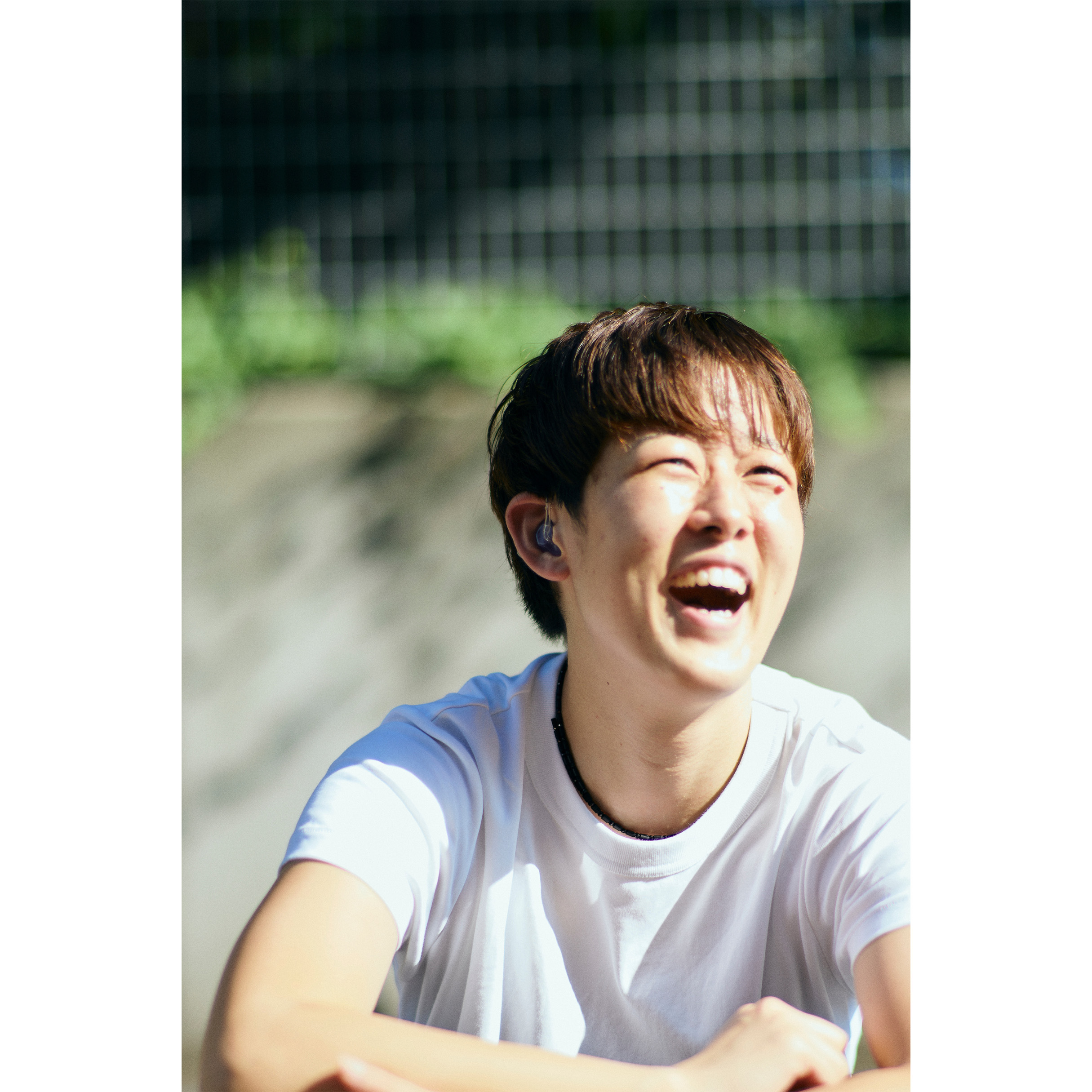
Instagram:8mionakata_volley
《Japan Deaf Volleyball Association》
Web:http://www.jdva.jp/
Instagram:jdva_woman
text by Rieko Kimura
photographs by Uta Mukuo

